Thomas Mann House Events Archive
2025
Doing Conspiracy Theory: A Reconstructive Approach to Suspicious Theorizing
University of California, San Diego (3000 Voigt Dr, La Jolla, CA 92093)

Attendance by invitation only
Info
Conspiracy theories have received attention in public debates and research. What has not been explored and theorized is their production as a collaborative social process, and especially their complex social functions in different communicative contexts - everyday interactions, social media conversations, party politics, political protest communication, and others. This presentation outlines this gap and proposes to fill it by shifting the focus from believing in conspiracy theories to the problem of doing conspiracy theories. This perspective has the potential to improve our understanding of the current conjuncture of conspiracy theorizing as a conjuncture of freewheeling (empty) antagonism, and thus to prove insightful for understanding the production of contentious political knowledge more generally.
Participant
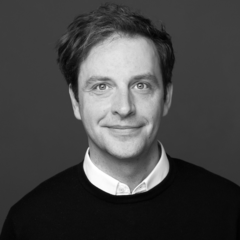
Nils C. Kumkar studied sociology and economics in Göttingen and spent a year abroad at UCLA. In 2016, he completed his doctorate at the Leipzig DFG Research Training Group “Critical Junctures of Globalization” with a thesis on crisis protests in the USA and Germany. Since 2016, he has been a research associate at SOCIUM in Bremen, where he researches and publishes on political conflict, social inequality, digitalization, alternative facts, and conspiracy theories.
Opera & Democracy: „Muss denn in diesem Land immer alles politisch sein?“
LichtwarkTheater (Holzhude 1, 21029 Hamburg)

Info
Kent Nagano will discuss his time as General Music Director of the Hamburg State Opera and the Philharmonic State Orchestra with musicologist Holger Noltze and author Inge Kloepfer. They will examine the current role of opera in democratic society and how it can bring people together, both as an institution and through its art.
The program will also feature music by Ernst Krenek, a composer known for addressing political themes in his works. His one-act opera The Dictator (1926), which depicts a power-hungry ruler who starts a war, explores social issues.
Additionally, Krenek contributed music for the reopening of the Hamburg State Opera after World War II, including his opera Pallas Athene weeps, written during his exile in the United States. This work serves as a commentary on the struggle for democracy.
The event is organized in cooperation with the Hamburg State Opera and the Opera and Democracy series of the Thomas Mann House, Los Angeles. It is curated by Thomas Mann Fellow Kai Hinrich Müller and has been hosted at various venues since January 2024.
From Stigma to Science: The Evolving Understanding of Psychedelics
Goethe-Institut Los Angeles (1901 W 7th St Suite A/B, Los Angeles, CA 90057)

Info
LSD began as a groundbreaking pharmaceutical developed by the Swiss company Sandoz in the 1940s, initially heralded for its potential in mental health treatment. However, its promise was quickly overshadowed by widespread abuse and government experiments in mind control, leading to prohibition and a lasting stigma. But is LSD’s current legal status still justified, or should it be reconsidered in light of new research?
What actually happens in the brain—specifically in the neocortex—when one takes LSD? Is it a dangerous substance or a powerful neuro-enhancer? Could it be a valuable tool for treating mental illness and trauma?
Author Norman Ohler explores these questions in his latest book, Tripped, which contextualizes the complex history of LSD. His personal perspective—his mother microdoses LSD to manage her Alzheimer’s—intersects with the extensive research of leading scientist Charles Grob, whose clinical studies examine the therapeutic potential of psychedelics in treating anxiety and other conditions. Together, their insights challenge long-standing misconceptions and open up a fascinating discussion on the past, present, and future of LSD.
Ohler’s Tripped is currently being adapted into the documentary TV series LSD for Mom.
Participants
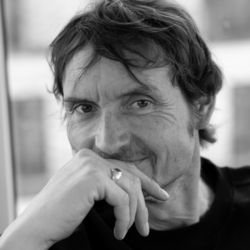
Norman Ohler is a Berlin-based novelist and filmmaker known for his research-driven storytelling. His 2017 nonfiction book Blitzed – Drugs in Nazi Germany became a New York Times bestseller and has been translated into 32 languages. One of his latest books, Tripped (2024), explores the history of LSD and serves as the basis for the upcoming documentary series LSD for Mom. Ohler’s work uncovers hidden histories, blending investigative research with compelling narratives. His most recent release, Der Zauberberg (2024), published by Diogenes, is inspired by Thomas Mann’s classic novel and explores profound questions about life, society, and the nature of human existence.
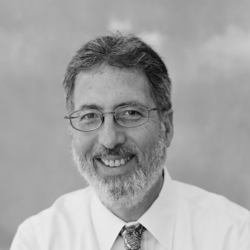
Charles S. Grob, M.D. is a Professor of Psychiatry and Pediatrics at UCLA School of Medicine and a leading researcher in psychedelic studies. Since the early 1990s, he has conducted clinical research on psychedelics, including the first modern study on psilocybin for advanced-cancer anxiety. His work also explores the effects of MDMA and ayahuasca. Over the last 30 years, he has published extensively on psychedelics and co-edited multiple books on the subject. Dr. Grob is a founding board member of the Heffter Research Institute, a nonprofit dedicated to advancing research on classic psychedelics for mental health treatment.

Kate Wolf is a writer and editor based in Los Angeles. She is a founding editor of The Los Angeles Review of Books, where she currently serves as editor-at-large and co-hosts and produces its weekly podcast, The LARB Radio Hour. Her writing has appeared in exhibition catalogues, anthologies, and a range of publications, including Bidoun, Bookforum, Art in America, The Nation, n+1, East of Borneo, and Frieze. From 2011 to 2016, she created and edited Night Papers, an artists’ newspaper in collaboration with Night Gallery. Her work has also been featured on KCRW and McSweeney’s program, The Organist.
Forced from Home
David Horvitz' 7th Ave Garden
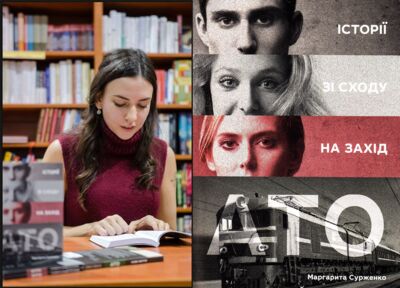
Info
Margaryta Surzhenko will read from her novel ATO: Stories from East to West. The novel revolves around the friendship of three protagonists from her hometown Luhansk during the time of the Russian invasion. Originally published in 2014, Surzhenko’s book became a bestseller in Ukraine in recent years.
The author will engage in a conversation with activist Iryna Ellis about the current situation in Ukraine and her experience as a writer in exile. Surzhenko was forced to leave Luhansk when the war began in 2014. She fled to the city of Irpin, until Russian forces occupied Irpin in 2022. The author has since found refuge in Germany.
Afterwards, award-winning sound healing practitioner and artist Roxie Sound Healing will perform a 15-minute crystal bowl sound journey, designed to soothe your mind, body, and spirit while cultivating a deep sense of lightness and peace.
Participants
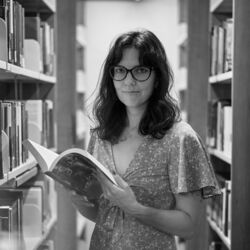
Margaryta Surzhenko is a writer. She graduated from the Interregional Academy of Personnel Management (IAPM) in Kyiv in 2012 with a degree in political science and published her first book about the war in Luhansk in 2014. In 2015, she founded a website featuring innovative fairy tales, which brings together more than 300 texts. Margaryta Surzhenko has published five novels. Since the beginning of the war in Ukraine, she has been living in Germany and teaching creative writing. She is a 2025 Thomas Mann Fellow.
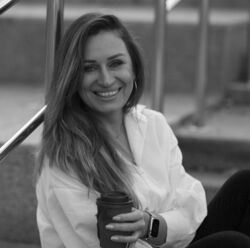
Iryna Ellis was born and raised in Kharkiv, a city near the Russian border. Before moving to the US, she spent eight years as a morning show TV host, earned a PhD and taught Public Speaking at one of Ukraine’s oldest universities. Since relocating to the US in 2014, Ellis has worked as an activist and volunteer, supporting the army and civilians of Donbas through fundraisers, protests, and large-scale events, such as stage hosting Independence Day of Ukraine celebration by the Capitol in Sacramento, which drew 10,000 attendees. She also manages a brand-new property in Redondo Beach as part of a property management company.

Roxie Sarhangi is a certified, award-winning sound healer practitioner, an artist, and a radiant and skilled creator of elevated experiences. Roxie connects the transcendental power of meditation to sound healing and spiritual practice, yet keeps everything approachable and relatable. Guiding from a heart-centered approach, she takes participants on a journey where they can raise their vibration and embrace a sense of wellbeing.
Queer Belongings and the Jewish “Homeland”: Israeli and Jewish American Lives Between Home and Away
Frankel Center for Judaic Studies (202 S Thayer St, Ann Arbor, MI 48104, United States)
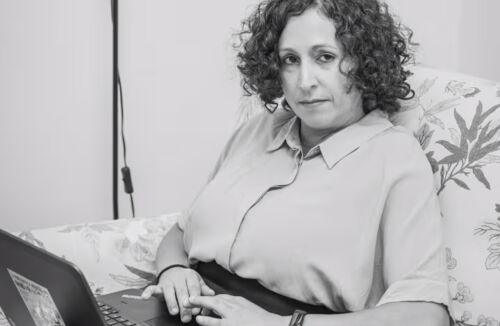
Info
Through a blend of fiction and academic inquiry, Amit examines the ways queer Jewish lives challenge and reimagine narratives of homeland, belonging, and migration. In her academic book A Queer Way Out: The Politics of Queer Emigration from Israel (SUNY, 2018), Amit explores the story of queer Israeli emigrants. Drawing on extensive fieldwork in Berlin, London, and New York, she examined motivations for departure and feelings of unbelonging to the Israeli national collective.
Amit showed that sexual orientation and left-wing political affiliation play significant roles in decisions to leave. Amit investigated how queer Israeli emigrants question national and heterosexual norms such as army service, monogamy, and reproduction, in their decision to leave Israel. In her new research project, Amit is conducting interviews with queer Jewish Americans grappling with notions of Homeland and Belonging, particularly in the wake of the October 7th events and their profound global reverberations.
Meanwhile, her two fiction books center on queer experiences in Israel/Palestine, offering intimate, layered portrayals of life at the margin of society. Her new fiction work deals with a possible loss of the Hebrew language and a possible obsolescence of the state of Israel.
The conversation with Amit will delve into how these themes converge in Amit’s creative and scholarly practices. It will explore the tensions between rootedness and mobility, the impact of historical trauma on personal and collective identity, and the possibilities for imagining alternative futures through queer lenses. Amit will also reflect on the role of storytelling—fictional and academic—as a tool for navigating the complexities of identity, belonging, and resistance in times of upheaval.
This event is organized by the Frankel Center of Judaic Studies, University of Michigan.
Participant
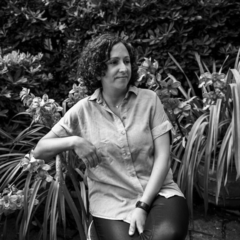
Hila Amit studied creative writing at Tel Aviv University and holds a PhD in Gender Studies from SOAS, University of London. As an author and essayist, she writes about queerness, gender, sexuality and the complex relationships between Israeli Jews and Palestinians. Her short story collection Moving On From Bliss was awarded the Israeli Ministry of Culture Prize for Debut Writers. Her non-fiction book A Queer Way Out: The Politics of Queer Emigration from Israel won the 2019 AMEWS Book Award. 2020 saw the publication of Hebrew for All, which aims to provide access to the Hebrew language using queer and feminist methods. In 2022, her novel The Lower City was published in Hebrew.
Germany's Election Shockwave & America's Retreat from Europe?
Webinar
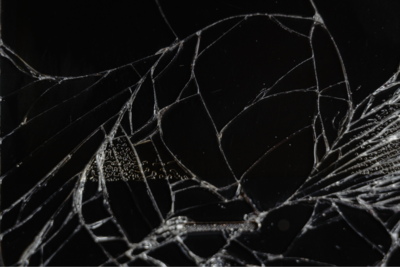
Info
Join us for a free webinar to discuss Germany's recent elections, which saw the far-right Alternative for Germany (AfD) party become the second-most popular political force as well as the growing American retreat from Europe. This political shift has raised concerns about Germany's future direction and its impact on NATO, especially as the U.S. under President Trump signals a retreat from European engagements. Chancellor-elect Friedrich Merz has advocated for increased European defense capabilities, including discussions on sharing nuclear weapons among Germany, France, and Britain, to bolster deterrence.
Participants

Ronen Steinke, born in Erlangen, grew up in the small Jewish community of Nuremberg. As a political editor at Süddeutsche Zeitung, he focuses on civil and human rights in his commentaries, essays, and columns. His legal dissertation on war crimes tribunals (2011) was praised as a “masterpiece” by FAZ. His publications, including the 2022 bestseller Vor dem Gesetz sind nicht alle gleich, have sparked significant political discourse. His biography of Fritz Bauer, prosecutor of the Frankfurt Auschwitz trials (2013), was adapted into an award-winning film and translated into multiple languages. Since 2023, he has been a lecturer at the Institute for Criminal Science and Philosophy of Law at Goethe University Frankfurt and is currently an Honorary Fellow at the Thomas Mann House.
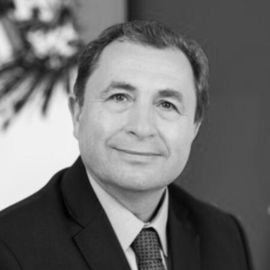
Michael Postl has served as Consul General of Austria in Los Angeles since August 2021. With three decades in diplomacy, international relations, and public international law, he previously held key roles such as Austria’s Ambassador to Malaysia and Brunei (2017-21), Armenia, Georgia, and Uzbekistan (2010-12), and Iran (2006-09). He also led Austria’s Department for Multilateral Economic Relations and was National Coordinator at the Central European Initiative. Additionally, Postl has been a lecturer in public international law at the University of Innsbruck since 2004.
Partner
This event is organized by the Los Angeles World Affairs Council & Town Hall.
Defending Democracy: The German Approach
UCLA Law School, Faculty Library
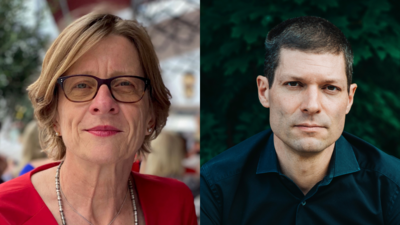
Info
Join us for a free webinar to discuss Germany's recent elections, which saw the far-right Alternative for Germany (AfD) party become the second-most popular political force as well as the growing American retreat from Europe. This political shift has raised concerns about Germany's future direction and its impact on NATO, especially as the U.S. under President Trump signals a retreat from European engagements. Chancellor-elect Friedrich Merz has advocated for increased European defense capabilities, including discussions on sharing nuclear weapons among Germany, France, and Britain, to bolster deterrence.
Participants

Ronen Steinke, born in Erlangen, grew up in the small Jewish community of Nuremberg. As a political editor at Süddeutsche Zeitung, he focuses on civil and human rights in his commentaries, essays, and columns. His legal dissertation on war crimes tribunals (2011) was praised as a “masterpiece” by FAZ. His publications, including the 2022 bestseller Vor dem Gesetz sind nicht alle gleich, have sparked significant political discourse. His biography of Fritz Bauer, prosecutor of the Frankfurt Auschwitz trials (2013), was adapted into an award-winning film and translated into multiple languages. Since 2023, he has been a lecturer at the Institute for Criminal Science and Philosophy of Law at Goethe University Frankfurt and is currently an Honorary Fellow at the Thomas Mann House.
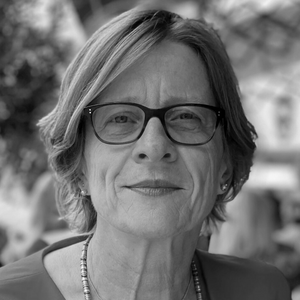
Alexandra Lieben is the deputy director of the Ronald W. Burkle Center for International Relations and lecturer at the UCLA Luskin School of Public Affairs. She also served as faculty advisor for the UCLA Anderson School’s Applied Management Research Program and is an affiliated faculty member of the Promise Institute for Human Rights at the UCLA School of Law. A certified mediator, she teaches a. o. constructive communication and alternative dispute resolution to undergraduate and graduate students at UCLA. For more than a decade, she has held seminars in a. o. crisis prevention, crisis de-escalation, and constructive communication for leaders and rank-and-file of public safety and public sector agencies.
Partner
This event is organized by UCLA Burkle Center.
Towards a Just Future: Transatlantic Perspectives on Justice Reform
Goethe-Institut San Francisco (657 Howard St, San Francisco, CA 94105, United States)

Info
Join Ronen Steinke, legal scholar, award-winning author, and Thomas Mann House Fellow, who focuses on civil rights and the intersection of law and politics, and Yoana Tchoukleva, attorney, policy analyst, and project creator dedicated to advancing a community-led vision for justice, healing, and transformation, for a compelling conversation on justice reform. Their discussion will explore key issues in legal systems and reform, fostering a transatlantic dialogue between the US and Germany. This conversation offers a unique opportunity to engage with two leading thinkers on pressing legal and social challenges, providing valuable insights into the evolving landscape of justice across borders.
Participants

Ronen Steinke, born in Erlangen, grew up in the small Jewish community of Nuremberg. As a political editor at Süddeutsche Zeitung, he focuses on civil and human rights in his commentaries, essays, and columns. His legal dissertation on war crimes tribunals (2011) was praised as a “masterpiece” by FAZ. His publications, including the 2022 bestseller Vor dem Gesetz sind nicht alle gleich, have sparked significant political discourse. His biography of Fritz Bauer, prosecutor of the Frankfurt Auschwitz trials (2013), was adapted into an award-winning film and translated into multiple languages. Since 2023, he has been a lecturer at the Institute for Criminal Science and Philosophy of Law at Goethe University Frankfurt and is currently an Honorary Fellow at the Thomas Mann House.
PEN America World Voices Festival: Forced Journeys - Stories of Home, Displacement, and Belonging
Goethe-Institut Los Angeles (1901 W 7th St Suite A/B, Los Angeles, CA 90057)

Information
What does it mean to belong to a place, a nation, a family, one’s own past? To what do we owe our homelands and what happens when we are displaced from them? Novelist Charmaine Craig, whose Burmese mother was both a beauty queen and a revolutionary, illuminates both national and personal trauma in her prize-winning Miss Burma; Héctor Tobar set his novel Tattooed Soldier in Los Angeles before the riots and in his parents’ native Guatemala during the years of military dictatorship. Photojournalist and founder of Refugee Eye, Lara Aburamadan recounts the ugliness of war and the endless cycle of Israeli bombardments in her native Gaza, in an effort to fight the dehumanization of Palestinians, bring about social change, and promote peace. In conversation with Ipek S. Burnett, a Turkish-born author and psychologist; these writers discuss in what ways exile gives them freedom to write, create, or advocate— and in what ways the draw of “home” limits that expression.
This event is presented by PEN America with Thomas Mann House and the Goethe-Institut in the spirit of Thomas Mann’s 150th birthday celebration, who wrote many of his most well-known works from his exile residence in Los Angeles.
The 2025 PEN World Voices Festival, the 20th anniversary of the festival, will be a celebration of world literature and free expression. Over four days, over 80 writers from nearly 30 countries will be featured in engaging talks, panels, readings, and performances in New York City and greater Los Angeles.
Visit https://worldvoices.pen.org/ for more information about the entire festival, as well as PEN America.
Participants
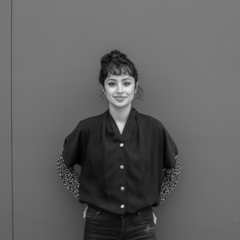
Lara Aburamadan is a Palestinian visual artist, journalist and founder of Refugee Eye. Born and raised in Gaza City, now based in the San Francisco Bay Area, she tends to embrace the human perspective through visual storytelling. Her photographs and writings have been published in Time Magazine, New York Times, Washington Post, VICE, San Francisco Chronicle, and elsewhere. Lara has been chosen by Time Magazine among 34 women photojournalists around the world that you should follow their work in 2017.
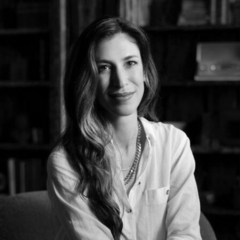
Ipek S. Burnett, PhD, is a Turkish-American author and scholar who offers a psychological lens on social, cultural, and political issues. She is the author of A Jungian Inquiry into the American Psyche: The Violence of Innocence (2020) and the editor of Re-Visioning the American Psyche: Jungian, Archetypal, and Mythological Reflections (2024). Her forthcoming book, Art of Activism: A Psychological Perspective, explores the intersection of psychology, arts, and activism. A published novelist in Turkey, her literary work examines themes of free speech, democracy, and historical consciousness. Based in San Francisco, she serves as Co-Chair of the Human Rights Watch Executive Committee and is on the board of 826 Valencia, a nonprofit dedicated to supporting under-resourced students with their writing skills.
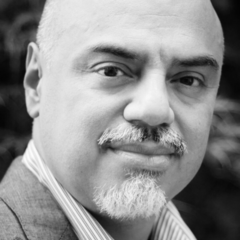
Héctor Tobar is a Los Angeles-born author of six books, including, most recently, Our Migrant Souls: A Meditation on Race and the Meanings and Myths of Latino, winner of the Kirkus Prize and other honors. His nonfiction Deep Down Dark was a New York Times bestseller and adapted into the film The 33. His novel The Barbarian Nurseries won the California Book Award Gold Medal and was a New York Times Notable Book. Tobar’s fiction has appeared in Best American Short Stories, and he earned his MFA from UC Irvine, where he is currently a professor. At the Los Angeles Times he was a foreign correspondent and was part of a reporting team that won a Pulitzer Prize. Tobar has been a Guggenheim fellow, a Harvard Radcliffe fellow, an op-ed writer for the New York Times, and a contributor to The New Yorker, National Geographic, and The New York Review of Books, among many other publications. He is the son of Guatemalan immigrants.
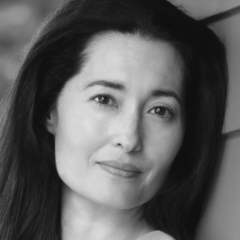
Charmaine Craig is the author of the novels Miss Burma, longlisted for the 2017 National Book Award for Fiction and the 2018 Women’s Prize for Fiction; My Nemesis; and The Good Men, a national bestseller. Her writing has been widely translated and appeared in venues including The New York Times Magazine, Narrative Magazine, AFAR, and Dissent. Formerly an actor in film and television, she studied literature at Harvard, received her MFA from UC Irvine, and serves as a faculty member in the Department of Creative Writing at UC Riverside.
Attendance Details
This Venue is ADA compliant.
ASL interpretation is available for this event by request only. Please reach out to our Box Office team at publicprograms@pen.org by April 21st to request. Please ask a Box Office Attendant or festival representative upon arrival for directions to accessible seating if preferred.
For further information on accessibility in this space, or to make a request, please contact publicprograms@pen.org
Partners



Exiled in Hollywood: Thomas Mann & Arnold Schoenberg at 150
UCLA Faculty Club
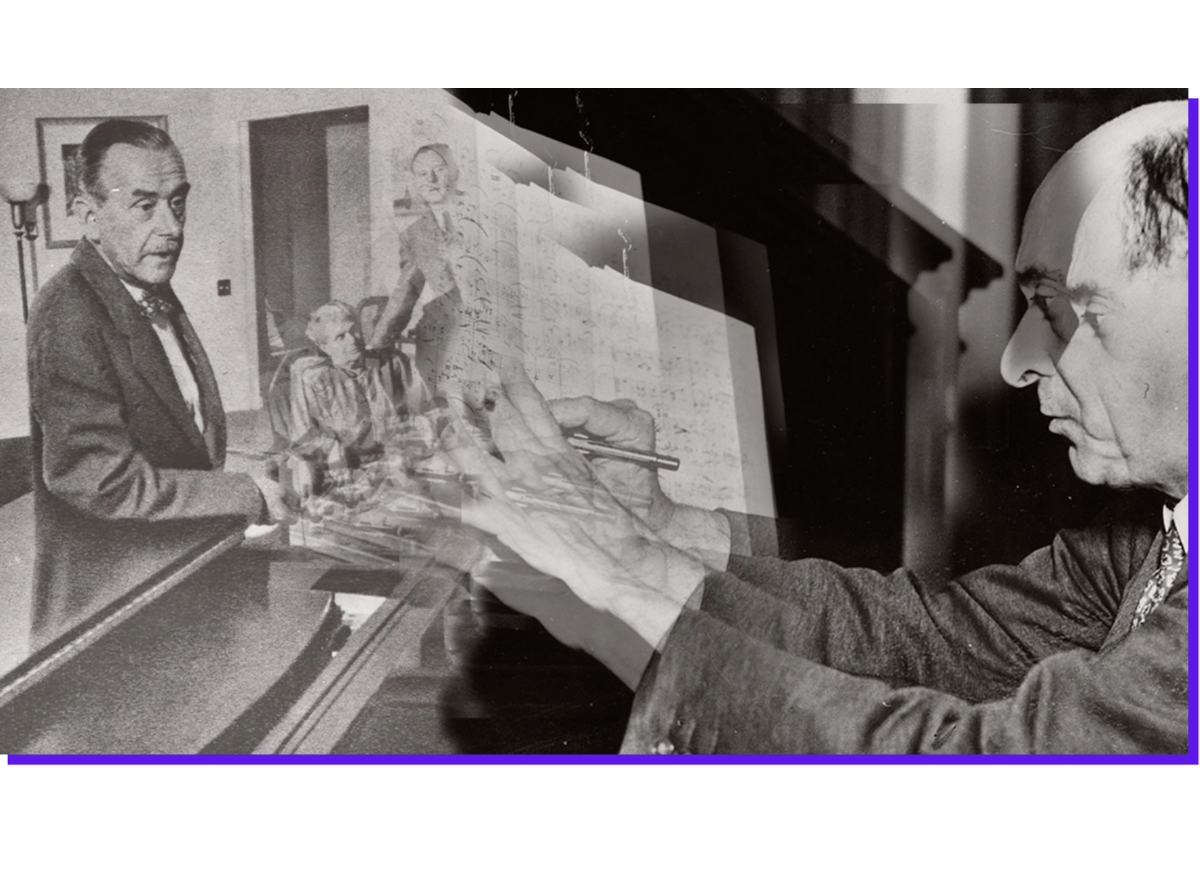
Information
To honor Thomas Mann’s 150th birthday anniversary and to celebrate the West Coast premiere of the opera Schoenberg in Hollywood, produced by the Lowell Milken Center for Music of American Jewish Experience, which explores the hypothetical scenario of what would have happened if Schoenberg had composed for Hollywood, this event will explore the fascinating and complex relationship between two key figures of the German-speaking émigré community and their relationship with the Hollywood film industry.
The opera Schoenberg in Hollywood revolves around a historic meeting between the legendary producer Irving G. Thalberg of Metro Goldwyn Mayer and the Austrian composer Arnold Schoenberg. Thalberg asks Schoenberg to compose music for a film based on Pearl S. Buck’s The Good Earth. While Schoenberg was intrigued by the prospect of creating a Hollywood film score that could reach millions, his demand for a $50,000 fee ultimately led to the project falling through. Meanwhile, Thomas Mann also pursued connections with Hollywood, exploring the possibility of adapting The Magic Mountain and his Joseph saga into films. But despite several discussions with producers and studios, these projects never came to fruition. Mann’s interest in cinema, however, extended far beyond personal ambition. His fascination with the medium dates back at least to 1924, as evidenced in his novel The Magic Mountain, in which the protagonist visits a film theater to watch Ernst Lubitsch's 1920 silent classic Sumurun. During his exile in Los Angeles, Mann developed a deep appreciation for the medium. He frequented his favorite theaters in Westwood, often attending screenings twice a week, and attended Hollywood film premieres. His diaries contain poignant, harsh, and humorous critiques of the films he watched. Mann also built relationships with prominent Hollywood figures, including Jack Warner, Walt Disney, Ernst Lubitsch, Alfred Hitchcock, and others, further cementing his connection to the cinematic world.
This event will delve into the multifaceted relationship between Thomas Mann and Arnold Schoenberg, exploring their Hollywood aspirations, their connections to the film industry, and the cultural exchange between émigrés and Hollywood. European exiled composers, such as Arnold Schoenberg, Erich Korngold, Hanns Eisler, and Franz Waxman, heavily influenced the genre of film music in the 1930s and 1940s. At the same time, Hollywood played a crucial role in supporting refugees, offering work contracts, necessary affidavits, and assistance through non-profit organizations like the “European Film Fund.”
The conversation will be accompanied by a short musical performance by acclaimed pianist Inna Faliks (UCLA Herb Alpert School of Music).
Learn more about Todd Machover’s opera Schoenberg in Hollywood here.
Learn more about the 150th anniversary of Thomas Mann here.
Participants
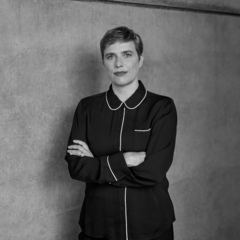
Doris Berger is the Vice President of Curatorial Affairs at the Academy Museum of Motion Pictures in Los Angeles. She was previously a Getty Postdoc Fellow, a Curator at the Skirball Cultural Center, and the Director of the Kunstverein Wolfsburg, Germany. Berger curated the touring exhibition Light & Noir: Exiles and Emigres in Hollywood, 1933-1950 at the Skirball (2014–15). At the Academy Museum, she co-curated the inaugural exhibitions Stories of Cinemaand Backdrop: An Invisible Art (2021), the touring exhibition Regeneration: Black Cinema, 1898–1971 (2022-23), and curated Cyberpunk: Envisioning Possible Futures Through Cinema (2024). She wrote the book Projected Art History: Biopics, Celebrity Culture, and the Popularizing of American Art (Bloomsbury, 2014) among numerous essays on art and film, gender and exile studies.

Inna Faliks - “Adventurous and passionate” (The New Yorker) Ukrainian-born pianist Inna Faliks has established herself as one of the most communicative, and poetic artists of her generation. She has made a name for herself through commanding performances of standard piano repertoire, as well genre-bending, interdisciplinary projects, and inquisitive work with contemporary composers. Her new memoir, Weight in the Fingertips, A Musical Odyssey from Soviet Ukraine to the World Stage, was published by Globe Pequot Press in October 2023. She holds the posts of Professor of Piano and Head of Piano at the UCLA Herb Alpert School of Music
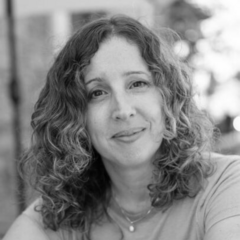
Lily E. Hirsch is a musicologist, with a Ph.D. from Duke University, and Writer-in-Residence at California State University, Bakersfield. She is the author of the books A Jewish Orchestra in Nazi Germany: Musical Politics and the Berlin Jewish Culture League (University of Michigan Press in 2010), Anneliese Landau’s Life in Music: Nazi Germany to Émigré California (Eastman Studies in Music in 2019), Can’t Stop the Grrrls: Confronting Sexist Labels in Music from Ariana Grande to Yoko Ono (Rowman & Littlefield, 2023), and Taking Funny Music Seriously (Indiana University Press, 2024), among others.
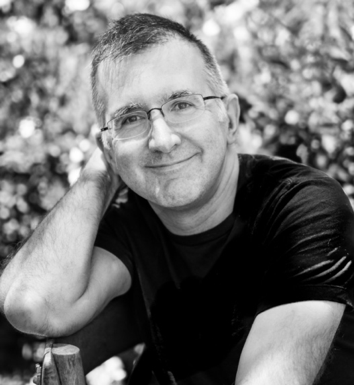
Alex Ross has been the music critic of The New Yorker since 1996. His first book, The Rest Is Noise: Listening to the Twentieth Century, won a National Book Critics Circle Award and was a finalist for the Pulitzer Prize. His second book, Listen to This, is a collection of essays. His latest book is Wagnerism: Art and Politics in the Shadow of Music, an account of Wagner’s vast cultural impact. He has written often about Thomas Mann and the émigré community in L.A. for The New Yorker. He was awarded with a MacArthur Fellowship and the Belmont Prize.
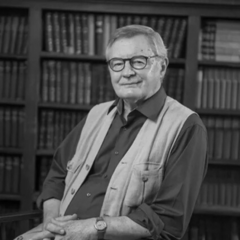
Hans Rudolf Vaget is Professor of German Studies and Comparative Literature at Smith College (Northampton, Massachusetts). He received his academic training at the universities of Munich and Tübingen, the University of Wales at Cardiff and at Columbia University in New York. His research focuses on Goethe, Wagner and Thomas Mann, on which he has published extensively. Recently he published Wehvolles Erbe: Richard Wagner in Deutschland. Hitler, Knappertsbusch, Mann (S. Fischer Publishing House, 2017). He is the author of the seminal book Thomas Mann, der Amerikaner: Leben und Werk im amerikanischen Exil, 1938-1952 and one of the general editors of GKFA (Mann's works, letters, and diaries), published by S. Fischer Verlage.
Partner
This event is organized by the UCLA Herb Alpert School of Music, the UCLA Lowell Milken Center for Music of American Jewish Experience, the UCLA Department of European Languages and Transcultural Studies, and the Thomas Mann House Los Angeles. This event is part of "Mann 2025: 150 Years of Thomas Mann".
An Appeal to Reason: Celebrating Thomas Mann at 150
USC Capital Campus (1771 N St NW Washington, DC 20036)
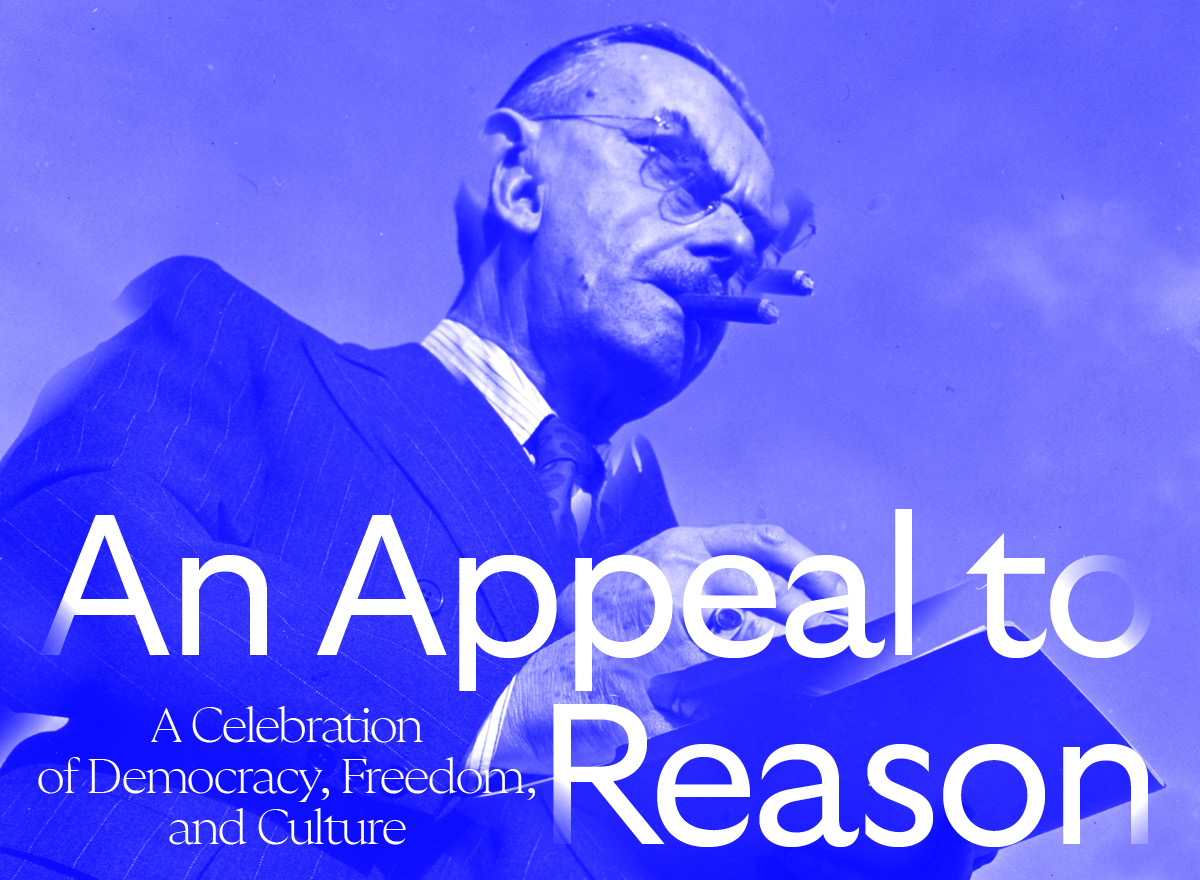
Info
Join us in commemorating the 150th birthday of writer and Nobel-laureate Thomas Mann with a timely exploration of his enduring legacy and its relevance to the challenges facing global democracy, freedom of expression, and the power of literature today. This transatlantic event in partnership with the Goethe-Institut Washington, D.C., the Thomas Mann House Los Angeles, USC Libraries, and the USC Dornsife Center for Advanced Genocide Research takes place at the USC Capital Campus.
This special event will utilize Mann's life and work as a springboard for critical conversations about the present state of our world. In 1941, exiled in the U.S., Mann was appointed Consultant in German Literature at the Library of Congress in Washington, D.C., delivering powerful annual speeches, such as The War and the Future (1943), Germany and the Germans (1945), and Goethe and Democracy (1949). This event will revisit the historic connection between the U.S. capital and Thomas Mann’s renowned speeches to examine his political and artistic legacy in the context of contemporary challenges on both sides of the Atlantic. The event will feature panel discussions, lectures, a recital, as well as a sound artwork by Grammy-nominated musician Kokayi.
Program
Goethe-Institut Washington
Thomas Mann House Los Angeles
USC Libraries
Hans Rudolf Vaget, Professor of German Studies and Comparative Literature at Smith College and Thomas Mann expert, on Thomas Mann's life, work, and relevance.
Reading by Renea S. Brown, actor, writer, and educator
Panel discussion featuring best-selling writer, poet, and scholar Clint Smith and Summer Lopez, Co-CEO and Chief Program Officer at PEN America, and moderated by human rights advocate Kimberly Marteau Emerson.
The conversation will explore the vital importance of the relationship between literature and democratic principles in a comparative and transatlantic perspective. What can writers and literary institutions contribute to societies when democracies come under pressure? The talk examines how the arts can serve as an essential tool for societal reflection and change.
Sound Performance by Grammy-nominated musician and artist Kokayi.
In a keynote dialogue, author Azar Nafisi and political scientist Daniel Ziblatt will address complex questions, such as a citizen's role in defending and upholding democratic values, the subversive power of literature, and how to bring disenfranchised citizens back into dialogue.
Attendance Details
This event is free and open to the public!
Please RSVP here.
Accessibility:
This venue is ADA compliant. The event will take place in English, with ASL Interpretation from Pro Bono ASL. Please ask an attendant or event representative upon arrival for directions to accessible seating if preferred. For other accessibility needs, please email teddy.rodger@goethe.de.
This program is open to all individuals. USC operates all of its programs and activities consistent with the University's Notice of Non-Discrimination. Eligibility is not determined based on race, sex, ethnicity, sexual orientation, or any other prohibited factor.
Participants
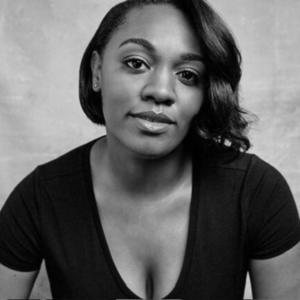
Renea S. Brown is a Helen Hayes Award winning actor in DC. She has appeared at The Shakespeare Theatre Company, Arena Stage, The Folger Shakespeare Theatre, Chesapeake Shakespeare Theatre, and Round House Theatre and more. You can watch her on Law and Order and Godfather of Harlem on MGM+, or see her work in the world premier of The American Five as Coretta Scott King at Fords Theatre this fall.
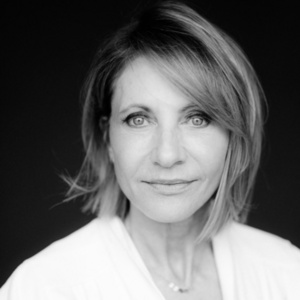
Kimberly Marteau Emerson is a lawyer, advocate and non-profit leader in human rights, education and foreign policy, especially transatlantic relations. She speaks regularly at conferences and gatherings in Europe and the US. In June 2023, she was appointed by President Biden to serve on the US Holocaust Memorial Council. Ms. Emerson also currently serves as Vice Chair of the Board of Human Rights Watch, Chair of the Board of Governors of Bard College Berlin, and on the Board of Trustees of Bard College in Annandale-on-Hudson. She serves on the Advisory Boards of the Thomas Mann House, foreign and domestic policy retreat center the Annenberg Foundation Trust at Sunnylands, the USC Center on Public Diplomacy, the German-American Institutes, and German social impact consultancy PHINEO. She is a member of the Council on Foreign Relations and the Pacific Council on International Policy.
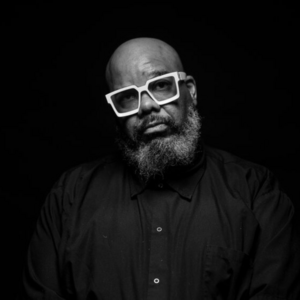
Kokayi is a GRAMMY-nominated musician, improvisational vocalist, producer, author, speaker, and multidisciplinary fine artist. A Guggenheim Fellow for Music Composition—the first emcee to receive the honor—he is also a Halcyon Arts and Nicholson Arts Fellow, and a TEDxWDC presenter. He is author of You Are Ketchup: and Other Fly Music Tales (Globe Pequot). Kokayi is a longtime collaborator and Board member with OneBeat, and has served as a U.S. State Department music emissary. A committed advocate for DC’s indigenous music, Kokayi served in multiple leadership roles within the Recording Academy, including Chapter President and National Trustee, where he helped establish go-go as an official genre within the Regional Roots category—cementing its legacy within music history.
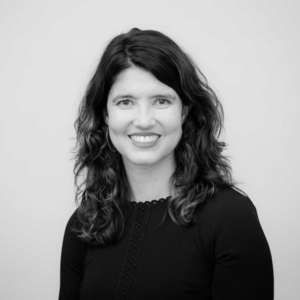
Summer Lopez is PEN America’s Interim Co-CEO and Chief Program Officer, Free Expression. She has been with the organization since November 2017 and has led PEN America's advocacy, research, and programming in defense of free expression in the U.S. and globally. Lopez has worked to advance democracy and human rights in the nonprofit and government sectors, including for eight years with the U.S. Agency for International Development (USAID) and three years with The AjA Project. Her writing has appeared in outlets including The Washington Post, TIME, The Daily Beast, and the New York Daily News. She has lived and worked in Zimbabwe, Egypt, Nepal, India, and Ghana, and holds a BA from Harvard University and a master's in public affairs from the Princeton School of Public and International Affairs.
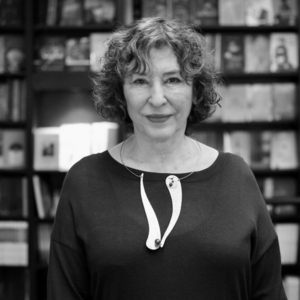
Azar Nafisi is a lifelong champion and ardent supporter of the importance of Humanities and Liberal Arts and the role they play in the preservation and promotion of democracy. She is the author of the New York Times bestseller Reading Lolita in Tehran: A Memoir in Books, which has won diverse literary awards. Nafisi was a Fellow at the Foreign Policy Institute of Johns Hopkins University’s School of Advanced International Studies (SAIS) in Washington, DC, and Director of The Dialogue Project & Cultural Conversations. She has lectured and written extensively on the political implications of literature and culture, as well as the human rights of the Iranian women and girls. She has been consulted on issues related to Iran and human rights both by the policy makers and various human rights organizations in the US and elsewhere.

Clint Smith is the author of the narrative nonfiction book, How the Word Is Passed: A Reckoning With the History of Slavery Across America, which was a #1 New York Times bestseller, winner of the National Book Critics Circle Award for Nonfiction, the Hillman Prize for Book Journalism, the Stowe Prize, and selected by the New York Times as one of the 10 best books of 2021. He is also the author of the New York Times bestselling poetry collection Above Ground and the award-winning poetry collection Counting Descent. His writing has been published in The New Yorker, The New York Times Magazine, Poetry Magazine, The Paris Review, and elsewhere. Clint received his B.A. in English from Davidson College and a Ph.D. in Education from Harvard University. He is a staff writer at The Atlantic.
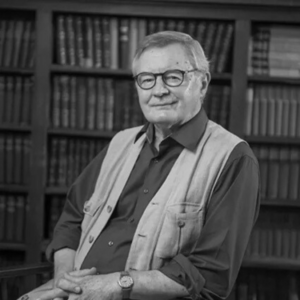
Hans Rudolf Vaget is Professor of German Studies and Comparative Literature at Smith College (Northampton, Massachusetts). He received his academic training at the universities of Munich and Tübingen, the University of Wales at Cardiff and at Columbia University in New York. His research focuses on Goethe, Wagner and Thomas Mann, on which he has published extensively. Recently he published Wehvolles Erbe: Richard Wagner in Deutschland. Hitler, Knappertsbusch, Mann (S. Fischer Publishing House, 2017). He is the author of the seminal book Thomas Mann, der Amerikaner: Leben und Werk im amerikanischen Exil, 1938-1952 (S.Fischer Publishing House, 2011).
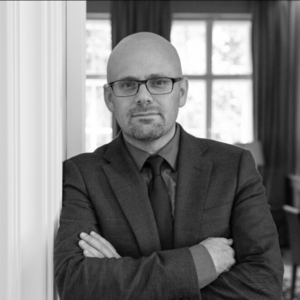
Daniel Ziblatt is the Eaton Professor of Government at Harvard University where he is also the director of the Minda de Gunzburg Center for European Studies. He leads a research group at WZB Berlin Social Science Center, Germany. His current research focuses on the comparative study of democracy and authoritarianism with a focus on Europe and the United States. He is the author of the New York Times bestseller How Democracies Die (2018), co-authored with Steven Levitsky. In 2023, he published Tyranny of the Minority (w/ Steve Levitsky), an analysis of American democracy in comparative perspective. He is also the author of the book Conservative Parties and the Birth of Democracy (Cambridge University Press, 2017), a history of democracy in Europe, in addition to Structuring the State (Princeton University Press, 2006). In 2023, Ziblatt was elected member of the American Academy for Arts and Sciences.
Partners

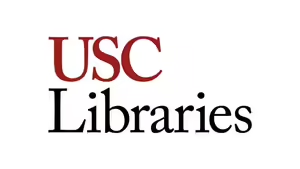
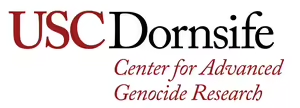


Faustus Revisited: Reading & Concert on Thomas Mann’s 150th Birthday
Thomas Mann House (1550 N San Remo Drive, CA 90272)
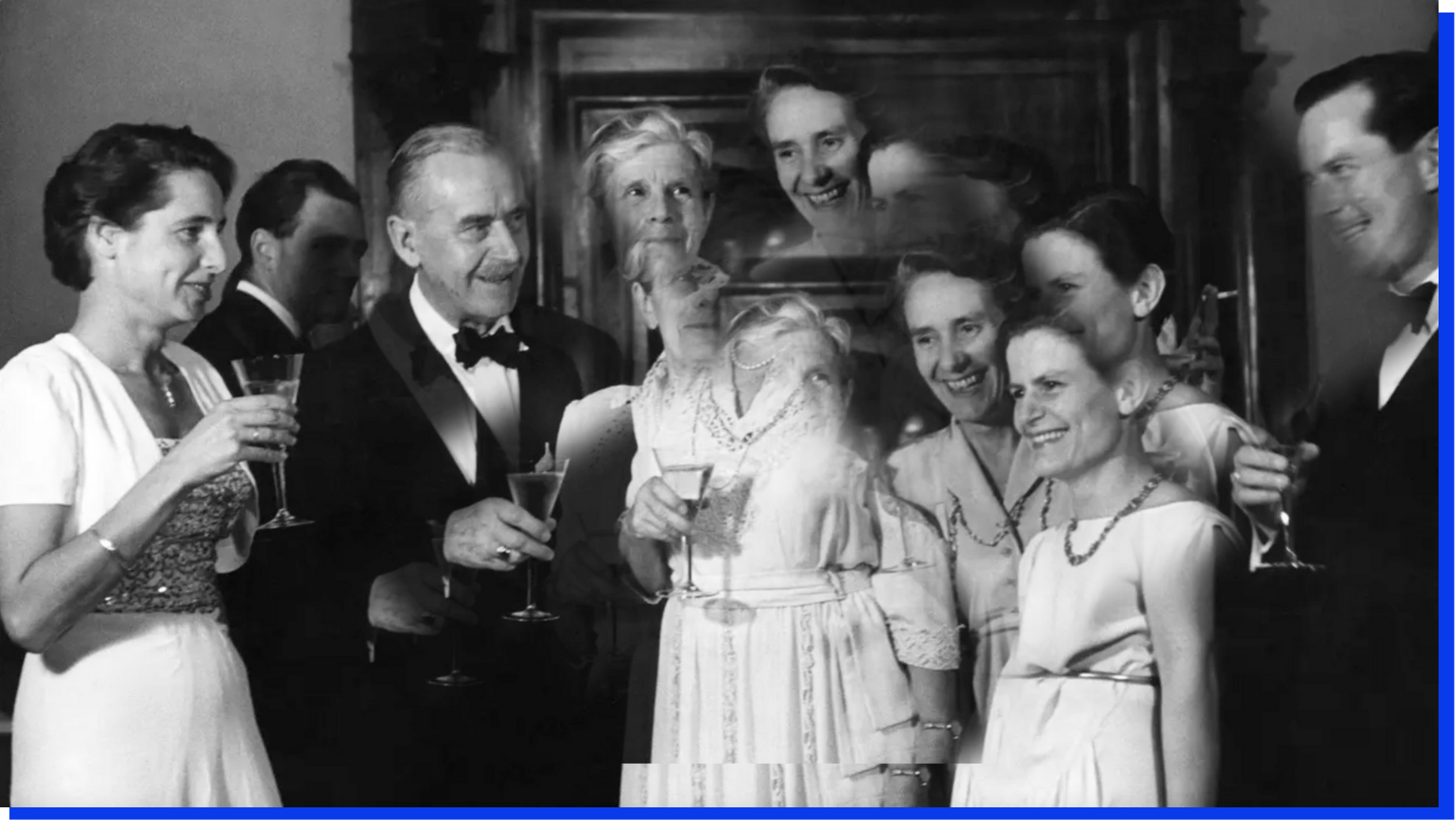
Language: English ・ By invitation only
Info
Join Monday Evening Concerts, the Los Angeles Poverty Department and the Thomas Mann House for a celebration to honor Thomas Mann’s 150th birthday and the reopening of the Thomas Mann House after the Palisades Fires.
The event also marks the continuation of the Thomas Mann House Residency Program, which was paused after the Palisades Fire in January 2025. 2025 Fellow Steven Walter will guide the audience through an evening of recitations from Mann’s seminal 1947 music novel Doctor Faustus, written during his exile in Pacific Palisades, accompanied by musical performances on Mann’s historic piano. The book tells the story of Adrian Leverkühn, a fictitious, brilliant composer who, in pursuit of artistic greatness, makes a metaphorical pact with the devil—sacrificing human connection and sanity for creative genius. The novel can be understood as both a critique of modern bourgeois life in Germany and an allegory for the rise of the Nazi party.
Selected passages from the book will be recited by actors Jaiye Kamson, Henriëtte Brouwers, and Tom Grode of the renowned Skid Row-based performance group Los Angeles Poverty Department, complemented by renditions of Beethoven: Op. 111 (Second Movement: Arietta: Adagio molto semplice e cantabile) and Caroline Shaw’s Gustave le Gray, performed by acclaimed pianist David Kaplan (UCLA Herb Alpert School of Music). The program will also feature excerpts of early electronic masterworks by Karlheinz Stockhausen and Elsa Marie Pade, as well as a live performance of Helmut Lachenmann's Guero and Julius Eastman’s Buddha, played by Jonathan Hepfer, the artistic director of Monday Evening Concerts.
The combination of music and readings from Doctor Faustus will allow a new way of experiencing Mann’s work while celebrating his 150th birthday and the reopening of the Thomas Mann House after the fires.
Program
Julius EASTMAN - BUDDHA (1983) [Entrance Music]
Jonathan Hepfer, percussion
:::::
Thomas MANN - DOCTOR FAUSTUS: Recitation I (1947)*
Henriëtte Brouwers, reader
:::::
Ludwig Van BEETHOVEN - PIANO SONATA No. 32, Op. 111 (mvmt. ii: ARIETTA) (1822) [18']
David Kaplan, piano
:::::
Thomas MANN - DOCTOR FAUSTUS: Recitation II (1947)*
Tom Grode, reader
:::::
Caroline SHAW – GUSTAVE LE GRAY (2012) [10']
David Kaplan, piano
:::::
Thomas MANN - DOCTOR FAUSTUS: Recitation III (1947) *
Jaiye Kamson, reader
:::::
Karlheinz STOCKHAUSEN - GESANG DER JÜNGLINGE (1956) [6']
Electronic Playback
:::::
Helmut LACHENMANN - GUERO (1970) [4']
Jonathan Hepfer, piano
* some readings of DOCTOR FAUSTUS are underscored by excerpts of Elsa Marie Pade's FAUST for electronic playback (1962).
Participants

Henriëtte Brouwers has been the Associate Director of the Los Angeles Poverty Department since 2000. As Associate Director, she directs, performs, and produces many LAPD projects. While, living in Paris in the early 1980’s Brouwers studied corporeal mime with Etiènne Décroux and was a member of Boal's in exile, Theatre of the Oppressed group. Born in the Netherlands, and while living in Amsterdam, she performed with important groups including Grif Theater, Luc Boyer and the National Dutch Opera. She founded movement theater ACTA, and her performances, including her solo Malinche, toured the US, Belgium and The Netherlands. Brouwers devised the Weeping Women performances at Pomona College and with LAPD. She is featured in Bill Viola’s renowned video series The Passions.

Tom Grode is a former Skid Row resident, with numerous credits for casting films and television series. He moved to Skid Row in 2015 and has performed with LAPD in What Fuels Development?(2016), Walk the Talk (since 2016), The Back 9 (2017), I Fly! (2019), The New Compassionate Downtown (2021), The Resilience Monologues (2022) and LAPD’s current production The Covid Hotel Welcomes You to the Future. For The Back 9 Tom performed and contributed to the script as a writer, and he traveled with LAPD for community residencies in Philadelphia and Minneapolis. Tom has been active in the Skid Row Community with the Skid Row Design Collective, the Skid Row Neighborhood Council Formation Committee, the Skid Row Community Improvement Coalition, and Skid Row Now & 2040.
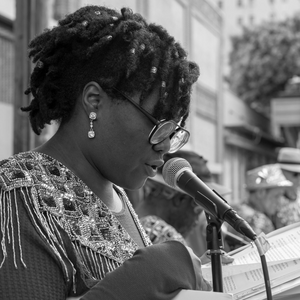
Jaiye Kamson is a multimedia artist who has performed with the LA Poverty Department since December 2023, when the Welcome to the Covid Hotel performance was being developed, and she performed in Walk the Talk 2024. A visual artist, her work is in the Skid Row History Museum’s current exhibition, Walk with Me by artists from The People Concern’s Studio 526, Jaiye works as an archival assistant at in the Skid Row History & Museum Archive.

David Kaplan is a New York-born piano soloist and chamber musician, praised by the Boston Globe for “grace and fire” at the keyboard. He has appeared as soloist with the Britten Sinfonia, Das Sinfonie Orchester Berlin, and in the last season appeared with the orchestras of Hawaii and San Antonio, improvising his own cadenzas in concerti of Mozart. He released two acclaimed albums in 2024: the GRAMMY nominated “DECODA”, and his solo debut disc, “New Dances of the League of David,” which was lauded by Financial Times, Gramophone, Fanfare, and more. He has given recitals at the Ravinia Festival, Washington’s National Gallery, and New York’s Carnegie and Merkin Halls, and performs chamber music with such collaborators as the Attacca Quartet, cellist Colin Carr, and in a longstanding duo with pianist-composer Timo Andres. Kaplan is the Assistant Professor and Inaugural Shapiro Family Chair in Piano Performance at the UCLA Herb Alpert School of Music, where he has taught since 2016.
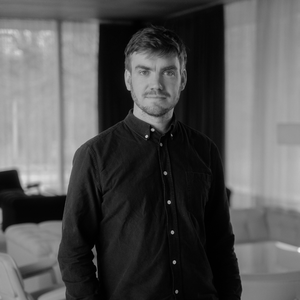
Steven Walter is an award-winning music curator and cultural manager. He grew up near Stuttgart as part of an American family in Germany, with a few interludes in the USA. He studied cello in Oslo and Detmold and cultural management in Hamburg. In 2009, he founded PODIUM Esslingen and developed it into an award-winning platform for new concert formats. He has been the director of the Beethovenfest Bonn since 2021. Walter is a 2025 Thomas Mann Fellow.
Partner
This event is organized by the Thomas Mann House Los Angeles, in collaboration with Monday Evening Concerts and the Los Angeles Poverty Department. This event is part of "Mann 2025: 150 Years of Thomas Mann".
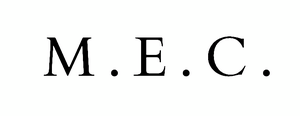
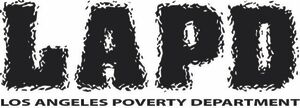


An Evening of Contemporary Cello with Seth Parker Woods & Thomas Mann Fellow Steven Walter
Thomas Mann House (1550 N San Remo Drive, CA 90272)
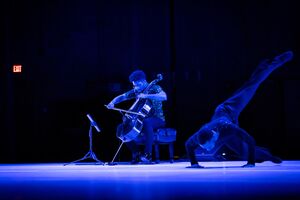
Language: English ・ By invitation only
Info
Join the Thomas Mann House and Thomas Mann Fellow Steven Walter for a captivating evening with three-time GRAMMY-nominated cellist Seth Parker Woods.
The insightful conversation explores the diversity of America's classical music scene, discussing approaches to composing new music in today's world and the profound connection between music-making and societal issues. Woods, hailed by The Guardian as “a cellist of power and grace,” will perform a program of powerful solo cello works by American contemporary composers Alvin Singleton, Chinary Ung, Carlos Simon, and Giacinto Scelsi. In conversation with music curator Steven Walter, they will explore the diversity of America's classical music scene, discussing approaches to composing new music in today's world and the profound connection between music-making and societal issues on both sides of the Atlantic.
Participants
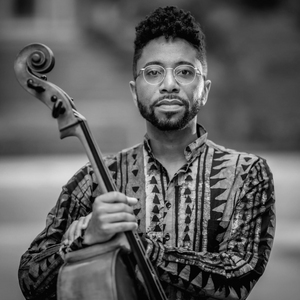
Three-time GRAMMY®-nominated cellist Seth Parker Woods has established his reputation as a versatile artist and innovator across multiple genres. Woods’ projects delve deep into our cultural fabric, reimagining traditional works and commissioning new ones to propel classical music into the future. He is an honoree of the 2023 Seattle Symphony’s 25th Anniversary Silver Gala and recipient of the 2022 Chamber Music America Michael Jaffee Visionary Award. Woods has served on the faculty of the Thornton School of Music at The University of Southern California since 2022, and was appointed to the Robert Mann Chair in Strings and Chamber Music in 2024.

Steven Walter is an award-winning music curator and cultural manager. He grew up near Stuttgart as part of an American family in Germany, with a few interludes in the USA. He studied cello in Oslo and Detmold and cultural management in Hamburg. In 2009, he founded PODIUM Esslingen and developed it into an award-winning platform for new concert formats. He has been the director of the Beethovenfest Bonn since 2021. Walter is a 2025 Thomas Mann Fellow.
Loss of Shared Worlds: Reckoning with Environmental Destruction
Thomas Mann House (1550 N San Remo Drive, CA 90272)
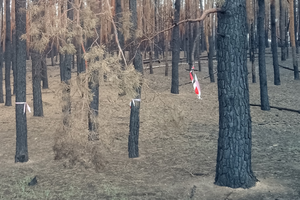
Language: English ・ By invitation only
Info
From Kyiv to Los Angeles, we have witnessed how environmental destruction has dramatically altered our understanding of home, place and belonging. To trace ways in which ecological grief is echoed and reckoned with across these different contexts, the Thomas Mann House- which recently reopened after the devastating Palisades Fire- presents a conversation between Darya Tsymbalyuk (University of Chicago) and Ursula K. Heise (UCLA). The conversation will open with Tsymbalyuk briefly introducing her recent book Ecocide in Ukraine: The Environmental Cost of Russia’s War (Polity, 2025) and sharing poignant accounts of witnessing ecocide in her homeland of Ukraine. Drawing connections between Ukrainian experiences, the scarred lands of the Pacific Palisades, and beyond, Tsymbalyuk and Heise will discuss the loss of cherished places and species to examine the role of storytelling and the cultural imaginations in ways of inhabiting the damaged Earth.
Darya Tsymbalyuk's residency is part of a collaboration with Kyiv to LA, a cross-cultural initiative that invites Ukrainian artists, researchers, and art historians to participate in a residency and public program in Los Angeles. Organized by Independent Curator Asha Bukojemsky, the project marks a collaborative framework with several Los Angeles organization, including the Villa Aurora & Thomas Mann House; 18th Street Arts Center; Institute of Contemporary Arts, Los Angeles (ICA LA); GRI Scholars Program; California Institute of Technology (Caltech); The Center for European and Russian Studies, UCLA; Los Angeles Filmforum; and e-flux in New York, amongst others. Kyiv to LA is made possible by a generous grant from Nora Mcneely Hurley and Manitou Fund.
Participants

Ursula K. Heise holds the Marcia H. Howard Term Chair in Literary Studies in the Department of English and the Institute of the Environment and Sustainability at UCLA. She is co-founder and current Director of the Lab for Environmental Narrative Strategies (LENS). Her research and teaching focus on the environmental humanities; contemporary environmental literature, arts, and cultures in the Americas, Germany, Japan, Spain, and Vietnam; literature and science; science fiction; and narrative theory. Her books include, among others, Sense of Place and Sense of Planet: The Environmental Imagination of the Global (Oxford University Press, 2008) and Imagining Extinction: The Cultural Meanings of Endangered Species (University of Chicago Press, 2016), which won the 2017 book prize of the British Society for Literature and Science. She is co-editor of The Routledge Companion to the Environmental Humanities (Routledge, 2017), and co-editor of the series Literatures, Cultures, and the Environment with Palgrave.

Darya Tsymbalyuk writes, researchers and makes images, and her work lies at the intersection of environmental humanities and critical-creative practice. She is the author of the book Ecocide in Ukraine: The Environmental Cost of Russia’s War (Polity, 2025). Darya serves as an Assistant Professor at the Department of Slavic Languages and Literatures and the Committee on Environment, Geography, and Urbanization (CEGU), University of Chicago.
Wildfire: Resilience, Recovery, and Return
Thomas Mann House (1550 N San Remo Drive, CA 90272)

Language: English ・ By invitation only
Info
The Palisades and Eaton fires are among history's most significant climate-fueled disasters, with communities still struggling to return to normalcy. In response, Climate Resolve, with its expertise in resilience and recovery, is developing a powerful initiative to help communities recover and prepare for future climate-fueled events.
This joint gathering, organized by Climate Resolve and the Thomas Mann House, will bring together people affected by the fires, rebuilding groups, and friends from the community to exchange ideas and plan a resilient future.
Two short panel discussions will focusing on the rebuilding efforts and the future of the Palisades, and address the question on Los Angeles' communities and their role in helping the city's recovery.
Participants
Dr. Marc Futernick, MD, National Director of Sustainability for USACS
Kellie Hawkins, Partner at the public affairs firm EKA
Mary Hopf, Senior Librarian at the Palisades Branch Library
Robert Lempert, principal researcher at RAND and Director of the Frederick S. Pardee Center for Longer Range Global Policy and the Future Human Condition.
Jonathan Parfrey, founder and Executive Director of Climate Resolve
Thomas Aujero Small, CEO of Culver City Forward, 2018 Mayor of Culver City, member of the Mobility Committee of the Urban Land Institute Los Angeles, and member of the Thomas Mann House advisory board
Maryam Zar, civic leader and policy advocate behind the Palisades Recovery Coalition
Partner
This event is organized by Climate Resolve and the Thomas Mann House Los Angeles


Thomas Mann’s Antifascist Radio Addresses: “Listen, Germany!”
Thomas Mann House (1550 N San Remo Drive, CA 90272)

Language: English ・ By invitation only
Info
Join the Thomas Mann House for an engaging discussion on Thomas Mann’s BBC radio addresses delivered during his exile in the United States, featuring German Studies scholar Jeffrey High, Elaine Chen, scholar of German Studies and Comparative Literature, and moderated by Kalani Michell, media studies scholar in the Department of European Languages and Transcultural Studies at the University of California, Los Angeles.
As part of our ongoing programs honoring Thomas Mann’s 150th anniversary, literary scholars Jeffrey High and Elaine Chen, editors of the forthcoming book Thomas Mann’s Antifascist Radio Addresses, 1940–1945 (Camden House), will engage in a conversation about Thomas Mann’s BBC radio speeches, which he delivered from exile in the United States to listeners in Germany, Switzerland and occupied Netherlands and Czechoslovakia during the war. From 1940 until 1945, Thomas Mann pleaded to thousands of listeners to resist the Nazi regime and thus became the most important German voice in exile. His conviction that the “social renewal of democracy” is condition and warrant for its victory seems more relevant than ever.
Upon Hitler’s rise to power in 1933, Nobel-laureate Thomas Mann chose exile, eventually moving to the United States in 1938. An early critic of National Socialism, he gave over 150 public lectures with titles such as “The Coming Victory of Democracy.” From 1940 to 1945, he authored and narrated a series of anti-Nazi radio addresses that were broadcast to Germany by the BBC; German listeners risked severe punishment. Mann’s radio addresses constitute his most sustained contribution to the Allied war effort. In them, he comments on the progress of the war, contrasts fascism with democracy, measures Hitler against Roosevelt, and counters German propaganda with international consensus, lies with facts. After initially encouraging the Germans to resist the Nazi regime, Mann prepares them for the consequences of defeat, but also instills hope in them for future reconciliation with the community of nations.
Today, when democracy is again endangered in much of the world, Mann’s antifascist radio addresses have once again acquired urgency. A new volume by Jeffrey High and Elaine Chen presents English translations of all of Mann’s 58 radio addresses for the first time, with a foreword by Mann’s grandson Frido Mann, an introduction by leading Mann scholar Hans Rudolf Vaget, careful annotations, and a selection of photographs.
This conversation in the living room of the Thomas Mann House, where Mann wrote a significant amount of his radio speeches, will explore the historic circumstances surrounding this collaboration with the BBC, as well as the impact and consequences of Mann’s speeches and what we can learn from them today.
Learn more about the 150th anniversary of Thomas Mann here.
Participants
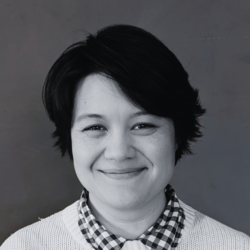
Elaine Chen is a Ph.D. candidate in Germanic Languages and Literatures and Comparative Literature at Harvard University. She holds an M.A. in German Studies from California State University, Long Beach, and was a Fulbright Combined Grant recipient in Salzburg, Austria. Her research focuses on the intersections of literature, exile, and political resistance, particularly in the works of Thomas Mann, Stefan Zweig, and Heinrich von Kleist. She has co-edited and contributed to multiple scholarly volumes and received the 2021 Kleist-Gesellschaft Award for Best Student Essay.
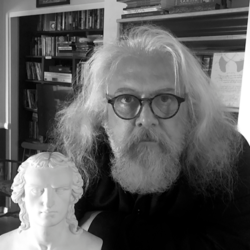
Jeffrey L. High earned his Ph.D. from the University of Massachusetts, Amherst, and is a professor of German Studies and Comparative and World Literature at California State University, Long Beach. He has also served as a Guest Professor at Portland State University’s German Summer School of the Pacific. His research explores the works of Schiller, Kleist, and Thomas Mann, as well as literary responses to political and social change. High has authored and edited numerous academic works and has received multiple awards for his excellence in teaching, advising, and scholarly mentorship at CSULB.

Kalani Michell is an Assistant Professor in the Department of European Languages and Transcultural Studies at UCLA. She previously taught at Goethe University Frankfurt and was a postdoctoral fellow with the research collective Configurations of Film. Her research spans film and media theory, sound studies, and media historiography. She is currently completing her monograph, Media Among Themselves: Unboxing Audiovisual Media from the 1960s and 1970s, and has published on topics including German cinema, intermediality, and the materiality of artistic production. Her work has appeared in CineAction, New German Critique, liquid blackness, and other scholarly publications.
Partner
This event is part of Mann 2025: 150 years of Thomas Mann

Bridging Physical Barriers: Inclusion at the Nexus of Robotics, Architecture, and Art
Thomas Mann House (1550 N San Remo Drive, CA 90272)

Language: English ・ By invitation only
Info
Join us for an insightful evening with Thomas Mann Fellow Robert Riener, Professor for Health Sciences and Technology at the ETH Zurich. After a series of short presentations by acclaimed researchers, he will facilitate a conversation on the future of inclusion at the intersection of physical space, movement, and assistive technology.
How can technology, design, and the arts come together to create spaces and systems that are truly inclusive? This interdisciplinary podium discussion explores how we can bridge not only physical barriers, but also disciplinary divides—uniting perspectives from robotics, architecture, rehabilitation, and performance to imagine new pathways toward accessibility and inclusion. By combining technical innovation with human-centered design and artistic insight, we can develop environments and technologies that respond more fully to the diverse needs of all users—including people with impairments.
Professionals from a range of fields—architecture, engineering, healthcare, the arts, and beyond—will take part in a shared exploration of how inclusion can be rethought at the intersection of physical space, movement, and assistive technology.
During his time at the Thomas Mann House, Robert Riener researches current technological trends in the field of AI and robotics, and their potential positive and negative effects on individuals with or without disabilities and on society as a whole. His project is to foster a dialogue about the appropriate use of new technologies in our society.
Participants
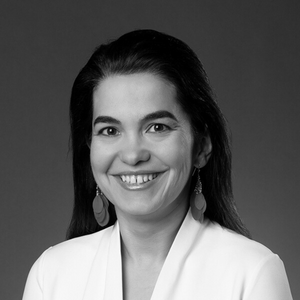
Prof. Burçin Becerik-Gerber (USC) is a pioneer in Human-Building Interaction. Her research explores responsive and adaptive environments that center the human experience, advancing how architecture and engineering serve diverse users.
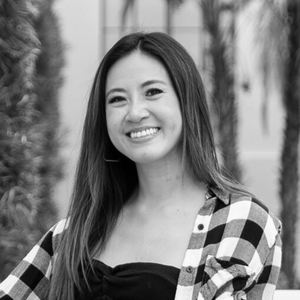
Natalie Fung (USC graduate) is a production manager and data analyst, as well as a wheelchair user and advocate for accessibility. She brings personal and professional insight into how inclusive design directly affects quality of life and agency.

Prof. David Reinkensmeyer (UC Irvine) is a leading researcher in neuro-rehabilitation and robotics. His work focuses on developing "rehabilitators"—mechatronic devices that support recovery after neurological injuries like stroke or spinal cord injury.

Prof. Dr. Robert Riener studied mechanical engineering at the Technical University of Munich (TUM) and the University of Maryland and received his doctorate from TUM in 1997. After his postdoctoral studies at TUM and the Polytechnic of Milan, Robert Riener habilitated at TUM in 2003. He was subsequently appointed to ETH Zurich, where he was promoted to full professor in 2010. Riener develops therapy and assistance devices for people with restricted mobility. He founded the CYBATHLON to facilitate a social dialogue about inclusion.
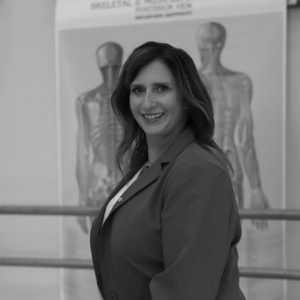
Prof. Kelli Sharp (UC Irvine), Chair of the Department of Dance and co-Vice Chair for Research in Physical Medicine and Rehabilitation, merges dance science with clinical research to improve movement education, therapy, and health across populations.
The Democracy Dividend
University of Delaware (122 Memorial Hall, 170 The Green, Newark, DE 19716)

Language: English
Info
In an era defined by political polarization and democratic backsliding, the conversation with Thomas Mann Fellow Rana Deep Islam focuses on the evolving role of corporations in upholding democratic values, focusing on a comparative analysis of German and U.S.-American approaches. It is premised on the central question of whether there exists a tangible "business case for democracy," arguing that active support for democratic principles makes companies more resilient, successful, and profitable.
Participants

Rana Deep Islam is a management consultant for the public sector. Prior to his consulting career, he held positions in politics and civil society, including project manager at Stiftung Mercator, Bertelsmann Stiftung, and GIZ. Rana Deep Islam began his career at the European Parliament in Brussels and at Johns Hopkins University in Washington, D.C.
Partner
This event is organized by the Political Science and International Relations Department & European Studies at University of Delaware, and co-hosted by the Thomas Mann House Los Angeles.
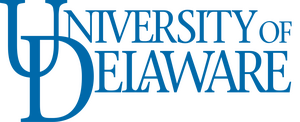

"What Is Good and What Is Evil" – Thomas Mann as a Political Activist
Leo Baeck Institute, New York (15 W 16th St, New York, NY 10011)

Language: English
Info
Join the Leo Baeck Institute New York and the Thomas Mann House Los Angeles for a keynote lecture by German Studies scholar and literary critic Kai Sina on Thomas Mann’s political activism during his exile in the U.S., including his strong support for Zionism. The lecture will be followed by a conversation with writer and scholar Samantha Rose Hill, exploring how ideas and forms of political engagement crossed the Atlantic, how Mann’s activism can be understood within the U.S. literary discourse at the time, and how exiled writers spoke out in different ways. The conversation will be moderated by Benno Herz, Program Director at the Thomas Mann House Los Angeles.
For decades, Thomas Mann was rarely taken seriously as a political intellectual—when he wasn’t outright dismissed. This persistent misperception is rooted deeply in the (West) German postwar mentality and intellectual culture. It is time to revise it decisively. Mann was a public figure who, over many years, advocated for freedom and democracy—resolutely, independently, and often at personal risk.
At the center of Kai Sina’s recent book What Is Good and What Is Evil – Thomas Mann as a Political Activist (Propyläen Verlag, 2024) is not a systematic political theory, but a practice of public intervention that shaped Mann’s intellectual self-conception—a form of “social activism” he explicitly affirmed in 1930. In his lecture, Sina will show that Mann’s political activism did not begin in exile, but already in the Weimar Republic. Exemplary for this development is Mann's early and public opposition to antisemitism, which went hand in hand with a clear, outspoken endorsement of Zionism. Mann’s support for Zionism, far from being a gesture of abstract solidarity, was a deliberate and visible alignment with Jewish self-assertion at a moment of growing nationalist and antisemitic agitation. As early as 1921, he dismissed the rising right-wing ideology as “swastika nonsense”—a prescient response to the reactionary forces that would soon dominate Germany.
The lecture will be followed by a conversation and response with writer and scholar Samantha Rose Hill, author of Hannah Arendt (Reaktion Books, 2021).
This event is part of "Mann 2025: 150 Years of Thomas Mann.” Learn more about the 150th anniversary of Thomas Mann here.
Participants

Kai Sina is a professor of modern German literature with a focus on transatlantic literary history at the University of Münster. He has been a Visiting Scholar at the University of Chicago and at Princeton University. He received the Fritz Behrens Foundation’s Science Prize, and in 2020 he was awarded a Lichtenberg Professorship by the Volkswagen Foundation. Together with Hans Rudolf Vaget, he is currently preparing an annotated edition of the essays Thomas Mann wrote during his exile. He recently published the books "What Is Good and What Is Evil” – Thomas Mann as a Political Activist and TransAtlantik: Hans Magnus Enzensberger, Gaston Salvatore, and Their Magazine for Western Germany.

Samantha Rose Hill is the author of the critically acclaimed book Hannah Arendt (2021) and the editor and translator of What Remains: The Collected Poems of Hannah Arendt (2024). She is associate faculty at the Brooklyn Institute for Social Research in New York City. Her work has appeared in the New York Times, Paris Review, TLS, Los Angeles Review of Books, Jewish Review of Books, Commonweal, Lapham’s Quarterly, LitHub, Aeon, and the journals Public Seminar, Contemporary Political Theory, and Theory & Event.

Benno Herz is the Program Director at the Thomas Mann House Los Angeles. He is co-editor and co-author of the publications Thomas Mann’s Los Angeles: Stories from Exile 1940-1952 (2022) and Das Thomas Mann House – Politischer Denkort am Pazifik (2023). Herz is a lecturer at UCLA, teaching classes on German-speaking émigrés in Los Angeles, and covers related topics for international media outlets such as Frankfurter Allgemeine Zeitung.
Partner
This event is a collaboration between the Leo Baeck Institute New York and the Thomas Mann House. This event is part of Mann 2025: 150 years of Thomas Mann



A Celebration of the U.S. theatrical release of RIEFENSTAHL
Thomas Mann House (1550 N San Remo Drive, CA 90272)
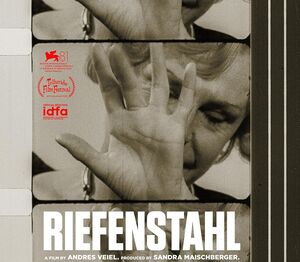
Language: English ・ By invitation only
Info
Join the Thomas Mann House for a celebration of the U.S. theatrical release of the acclaimed documentary film RIEFENSTAHL with producer Sandra Maischberger and director Andres Veiel.
Filmmaker and Nazi propagandist Leni Riefenstahl is considered one of the most controversial women of the 20th century. Her films Triumph of the Will and Olympia are defined by their fascist aesthetics, perfectly staged body worship, and the celebration of all that is "superior" and victorious, simultaneously projecting contempt for the imperfect and weak. But Riefenstahl – who first broke into the German film industry as an actress – spent decades after the war denying her association with Nazi ideology and claiming ignorance of the Holocaust. How did she become the Reich's preeminent filmmaker if she was just a hired hand? RIEFENSTAHL examines this question using never-before-seen documents from Leni Riefenstahl's estate, including private films, photos, recordings and letters, uncovering fragments of her biography and placing them in an extended historical context. During her long life after the fall of Nazism, she remained unapologetic, managing to control and shape her legacy. Meanwhile, her work would experience a renaissance, gaining esteem for its masterful technical skill. Today, Riefenstahl's aesthetics are more present than ever. Is that also true for their message? In an era where fascism is on the rise again, fake news is prevalent, and the meaning of political imagery is constantly dissected and debated, Andres Veiel's chilling new film shows that Leni Riefenstahl is more relevant than ever.
Partner
This event is a collaboration between Villa Aurora & Thomas Mann House Los Angeles and Kino Lorber.


Post-War/Post-Wall: Journalism in Times of Polarization
Northern Arizona University Student Union
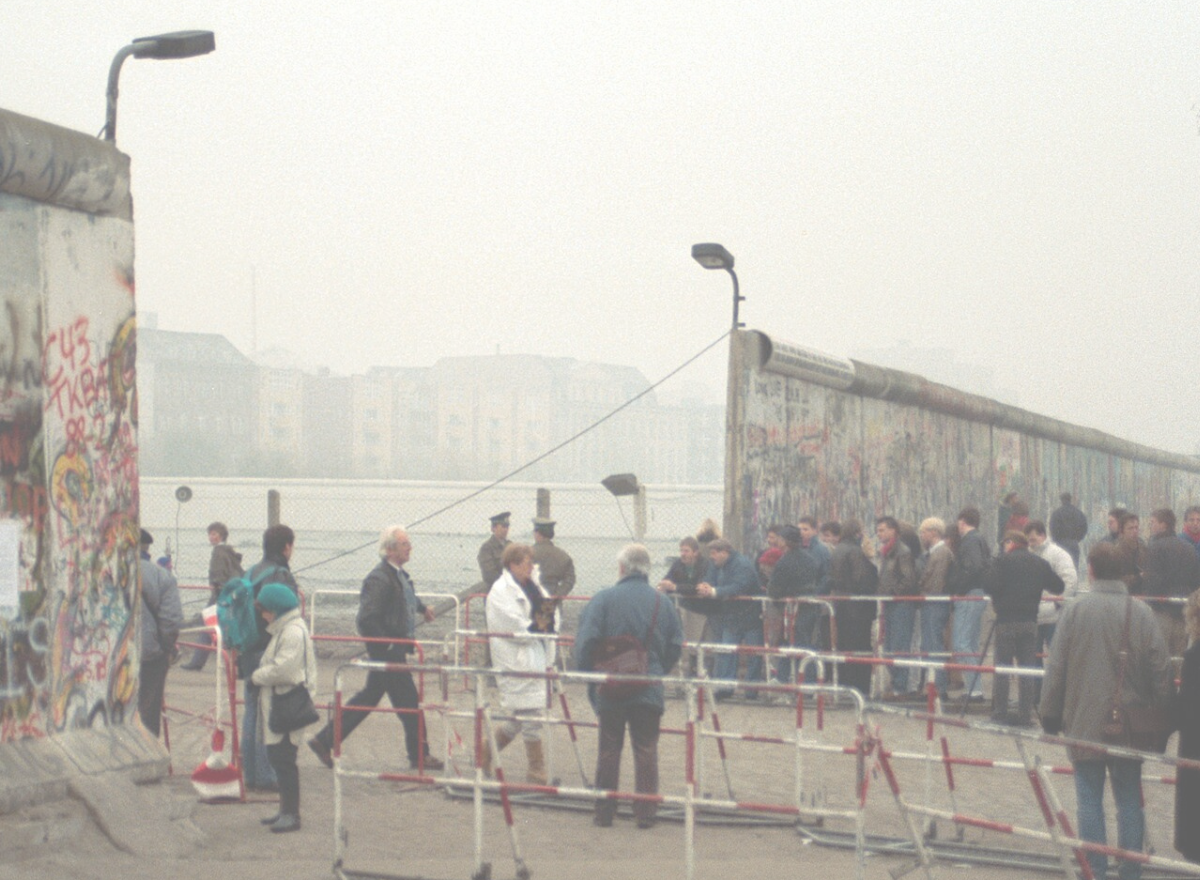
Language: English
Info
6.15 p.m. | Reception at Berlin Wall Exhibit, NAU Student Union
7 p.m. | Conversation in the Grand Canyon Room, NAU Student Union
Join 2025 Thomas Mann Fellow Susanne Beyer for a conversation on “Post-War/Post-Wall: Journalism in Times of Polarization” at Northern Arizona University, organized by the Martin-Springer Institute. The conversation will explore the challenges and responsibilities of journalism in societies marked by division and polarization. During her residency at the Thomas Mann House House, she explores the question of whether journalism needs to change in polarized times, whether there can be ways to report critically and empathetically at the same time, and whether journalism can initiate dialogues that bring people together rather than driving them apart. Beyer is a German author and journalist for the SPIEGEL.
Participants
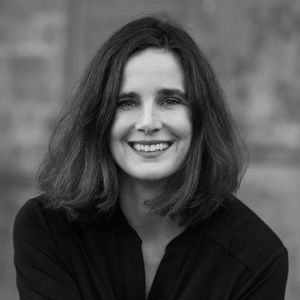
Susanne Beyer studied German literature, history and journalism in Bamberg and Vienna. After her vocational training at Deutsche Journalistenschule (DJS), she initially worked as a culture editor at SPIEGEL, where she was deputy head of department. She was deputy editor-in-chief of SPIEGEL for four years, then worked as a journalist in SPIEGEL's Berlin office and now writes for the editorial team. Alongside her job, Susanne Beyer is currently training to become a mediator.
Partner
An event by the Martin-Springer-Institute at the Norther Arizona University, co-presented by the Thomas Mann House Los Angeles.


The Business of Democracy
Goethe-institut Washington D.C.

Language: English • By Invitation Only
Info
In an era defined by political polarization and democratic backsliding, this symposium convened by 2025 Thomas Mann Fellow Rana Deep Islam focuses on the evolving role of the private sector in upholding democratic values. During his time in the US, Islam examines the role and interests of corporations to forge alliances in favor of democracy and social cohesion. What contribution should companies make to overcome polarization and strengthen civil engagement? And what is the added value for companies in engaging in democracy? Islam will present his research, and lead the panel discussions with a selected group of stakeholders that highlight both the normative and the business dimension of the topic at stake.
Participants

Rana Deep Islam is a management consultant for the public sector. Prior to his consulting career, he held positions in politics and civil society, including project manager at Stiftung Mercator, Bertelsmann Stiftung, and GIZ. Rana Deep Islam began his career at the European Parliament in Brussels and at Johns Hopkins University in Washington, D.C.
Partner
This event is co-presented by the Goethe-Institut Washington D.C. and the Friedrich Ebert Stiftung.


Hannah Arendt’s Lessons for Our Times – On Exile & Solidarity
Thomas Mann House (1550 N San Remo Drive, CA 90272)

Language: English ・ By invitation only
Info
Arendt's oeuvre has inspired many to stand in solidarity against authoritarianism, racial or gender-based violence, climate change, and right-wing populism. Her highly acclaimed work is a common point of reference for reflecting on political challenges today. But what if a careful analysis of solidarity in her writing reveals a darker side to this intellectual legacy What if solidarity, as she conceives of it, was not oriented toward equality, freedom, or justice for all, but creates a barrier to intersectional coalition building?
David D. Kim’s newly published book Arendt's Solidarity: Anti-Semitism and Racism in the Atlantic World (Stanford University Press, 2024) examines Arendt's lifelong struggle with ‘solidarity’—a deceptively straightforward, yet complex concept. Following the arc of her forced migration across the Atlantic, Kim looks at this conceptual conundrum in relation to every major concern of hers: Christian neighborly love, friendship, Jewish assimilation, Zionism, National Socialism, the American republic, Black Power, revolution, violence, and the human world. In dialogue with dissenting voices such as Thomas Mann, Gershom Scholem, Jean-Paul Sartre, James Baldwin, among others, and drawing from Arendt's publications, unpublished documents, private letters, and other archival material, Kim offers a full-scale reinterpretation of her oeuvre.
Participants

David D. Kim is Professor in the Department of European Languages and Transcultural Studies at UCLA, Associate Vice Provost of the International Institute, and the Community Engagement Advisor for the Division of Humanities at UCLA.

Why Read Thomas Mann in the 21st Century?
Thomas Mann House (1550 N San Remo Drive, CA 90272)

Language: English ・ By invitation only
Info
In her forthcoming book The Magician’s Mother: A Story of Coffee, Race, and German Culture, Veronika Fuechtner rethinks Mann’s family history and cultural milieu through a transnational and postcolonial lens, focusing on Thomas Mann’s Brazilian mother Júlia da Silva Bruhns. Renowned writer and critic Morten Høi Jensen’s forthcoming book The Master of Contradictions – Thomas Mann and the Making of “The Magic Mountain”, explores the philosophical and artistic tensions that shaped one of Mann’s most celebrated works – The Magic Mountain. Tobias Boes, author of the acclaimed 2019 bookThomas Mann’s War: Literature, Politics, and the World Republic of Letters, returns with A Reader’s Guide to Thomas Mann’s “Doctor Faustus”, a powerful companion to Mann’s ambitious postwar novel, which Mann completed during his exile in Los Angeles. Boes’ upcoming reader is supposed to reintroduce the canonical novel to a new readership in the U.S., also focusing on the novel’s political urgency. These authors from the fields of literary studies, history, and cultural criticism will delve into Mann’s political engagement, his literary innovations, and the questions his work continues to pose in our time.
In a conversation moderated by 2025 Thomas Mann Fellow and journalist Sandra Kegel, the panel will discuss the question: Why should we read Thomas Mann today? What can his literature and political activism offer contemporary readers? How does Mann speak to a new generation—grappling with crises of democracy, culture, and identity? Join us for an evening on Mann’s continued relevance, contradictions, and ongoing resonance in the twenty-first century.
Participants

Veronika Fuechtner is Chair of Comparative Literature and Associate Professor of German Studies at Dartmouth. She also teaches in Jewish Studies, and Women's, Gender and Sexuality Studies. In addition, she occasionally has held an appointment as Adjunct Associate Professor in the Department of Medical Education at the Geisel School of Medicine. She is the author of Berlin Psychoanalytic (University of California Press, 2011) and the co-editor of Imagining Germany, Imagining Asia (Camden House, 2013) and A Global History of Sexual Science 1880-1960 (University of California Press, 2017). She recently completed a monograph on Thomas and Heinrich Mann's Brazilian mother, Julia Mann, and the Mann family construction of race and “Germanness." And she is the editor of the forthcoming Norton critical edition of Susan Bernofsky’s translation of Thomas Mann’s The Magic Mountain. Her research interests include the history of psychoanalysis and sexology, the relationship between science and culture, discourses on race and ethnicity, German-language modernism, contemporary culture, German-language film, and global cultural and scientific histories. She has received research grants from the American Council of Learned Societies, The American Academy in Berlin, the American Psychoanalytic Association, the Deutsche Schillergesellschaft, the Max Planck Institute for the History of Science, the National Endowment for the Humanities and the Social Sciences Research Council. She is serving on the editorial board of PMLA and she chairs the conduct and anti-harassment committee of the GSA.

Morten Høi Jensen is a Danish-American writer and critic and the author of A Difficult Death: The Life and Work of Jens Peter Jacobsen(2017) and The Master of Contradictions: Thomas Mann and the Making of The Magic Mountain (2025). He has contributed to Liberties, the New York Review of Books, Washington Post, the Wall Street Journal, and Commonweal.

Sandra Kegel studied literature, theater, film and media studies in Aix-en-Provence, Vienna and Frankfurt. She has been an editor at the Frankfurter Allgemeine Zeitung since 1999. She worked in media and literature departments for many years and has been head of the FAZfeatures section since 2019. She also works as a juror and presenter and is a regular critic on the literary program “Buchzeit” (3sat). In 2005, she was awarded the Ravensburg Media Prize. During her 2025 fellowship at the Thomas Mann House, Sandra Kegel is investigating the extent to which the decline of the (local) press is promoting populism and mistrust in democratic structures and what lessons can be learned from the findings for the German newspaper landscape. She will also examine the use of AI in media companies and its implications for the journalistic ecosystem.
Partner
This event is part of Mann 2025: 150 years of Thomas Mann

Transatlantic Perspectives on Journalism
Thomas Mann House (1550 N San Remo Drive, CA 90272)

Language: English ・ By invitation only
Info
Participants
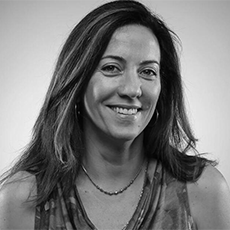
Lorraine Ali is television critic of the Los Angeles Times. Previously, she was a senior writer for the Calendar section where she covered culture at large, entertainment and American Muslim issues. Ali is an award-winning journalist and Los Angeles native who has written in publications ranging from the New York Times to Rolling Stone and GQ. She was formerly The Times’ music editor and before that, a senior writer and music critic with Newsweek magazine. Her writing awards include Best Online Feature from the New York Association of Black Journalists in 2007, an Excellence in Journalism Award in 2002 from the National Arab Journalists Association. In 1996, she won Best National Feature Story honors at the Music Journalism Awards.
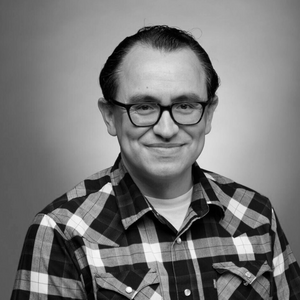
Gustavo Arellano is a columnist for the Los Angeles Times, covering Southern California everything and a bunch of the West and beyond. He was a finalist for the 2025 Pulitzer Prize in Commentary and the Mike Royko Award for Commentary and Column Writing and was part of the team that won the 2023 Pulitzer Prize in Breaking News for reporting on a leaked audio recording that upended Los Angeles politics. Arellano previously worked at OC Weekly, where he was an investigative reporter for 15 years and editor for six, wrote a column called ¡Ask a Mexican! and is the author of “Taco USA: How Mexican Food Conquered America.” He’s the child of two Mexican immigrants, one of whom came to this country in the trunk of a Chevy.

Susanne Beyer studied German literature, history and journalism in Bamberg and Vienna. After her vocational training at Deutsche Journalistenschule (DJS), she initially worked as a culture editor at SPIEGEL, a German weekly news magazine and one of the largest such publications in Europe, where she was deputy head of department. She was deputy editor-in-chief of SPIEGEL for four years, then worked as a journalist in SPIEGEL's Berlin office and now writes for the editorial team. Alongside her job, Susanne Beyer is currently training to become a mediator. Beyer is a 2025 Thomas Mann Fellow.
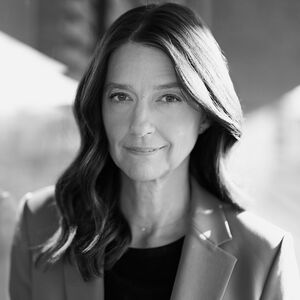
Cordula Meyer, born in 1971, has been deputy editor-in-chief of SPIEGEL, Germanys leading political website und magazin, since 2024. She studied political science and communication in Hamburg and at the University of Arizona in Tucson, graduating with an M.A. She has worked at SPIEGEL since 1999, initially as a reporter at the National Desk and later as a correspondent in Washington, covering the election and presidency of Barack Obama. She became the head of the National Desk in 2015. In 2023, she became a member of SPIEGEL's editorial desk. As a reporter she has covered how 9/11 was planned in Hamburg and the nuclear meltdown in Fukushima. She has been involved in volunteer work with Netzwerk Recherche, an organization promoting investigative reporting, for many years.


Heinrich Wefing is a multi-award-winning journalist, architecture critic and book author. After many years at the German newspaper Frankfurter Allgemeine Zeitung (FAZ) as cultural correspondent in Berlin, and West Coast correspondent in San Francisco, he moved to DIE ZEIT in 2008, a major German national weekly newspaper. Since 2018, he has headed the politics department there. Wefing is one of the initiators of the Charter of Fundamental Digital Rights of the European Union, which was published at the end of November 2016.
Stories That Matter: How Local Journalism Strengthens the Ties of Community and Democracy
Goethe-Institut San Francisco (657 Howard St, San Francisco, CA 94105)
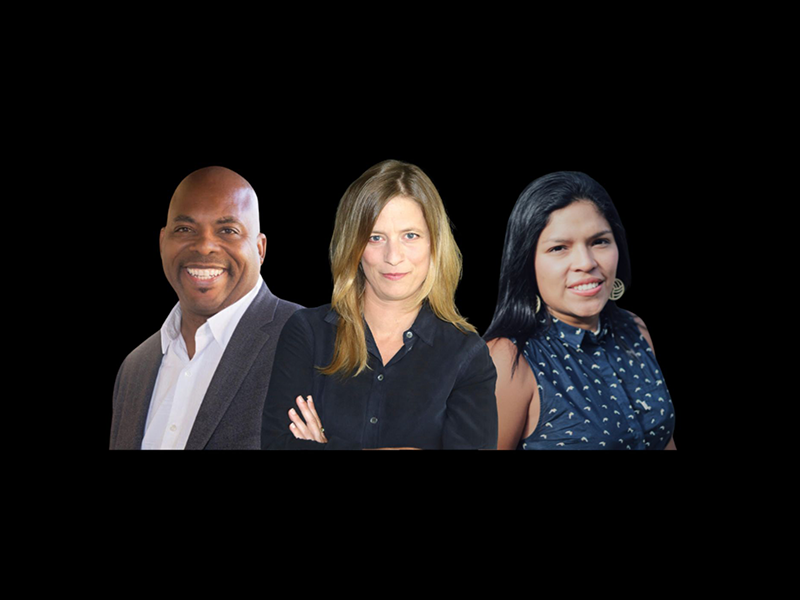
Language: English
Info
Participants
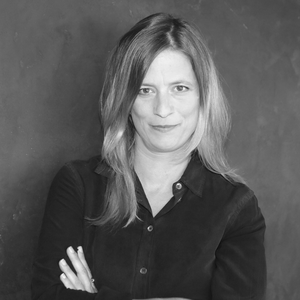
Sandra Kegel studied literature, theater, film and media studies in Aix-en-Provence, Vienna and Frankfurt. She has been an editor at the Frankfurter Allgemeine Zeitung since 1999. She worked in the media and literature departments for many years and has been head of the FAZ features section since 2019. She also works as a juror and presenter and is a regular critic on the literary program “Buchzeit” (3sat). In 2005, she was awarded the Ravensburg Media Prize.
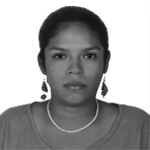
Liliana Michelena is a multimedia journalist and producer from Lima, Peru, whose career spans international reporting and community-focused storytelling. She has covered stories ranging from Olympic competition to political accountability for The New York Times, The Guardian, The Associated Press, and Spain's El País. A former elite soccer player and graduate of UC Berkeley's Graduate School of Journalism, Liliana works across languages, borders, and media formats. Her interdisciplinary approach to journalism draws on investigative reporting, narrative storytelling, and audience engagement, navigating the tensions between global news coverage and the deeply local work of connecting with communities.
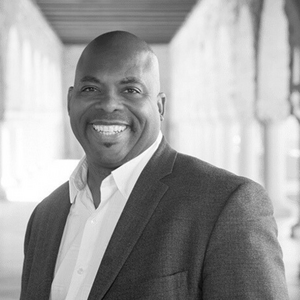
Michael Bolden is the UC Berkeley School of Journalism’s new dean. He previously served as the CEO of the American Press Institute and has had a distinguished career spanning The Washington Post, San Francisco Chronicle, Knight Foundation, Stanford University and API. He has worked as a reporter, editor, educator and nonprofit leader. His research focuses on leadership and belonging in news organizations and community-engaged journalism.
Partner
This event is a collaboration with the Goethe-Institute San Francisco.

Where do we go from here? Studying the Middle East in Times of a Breakdown of Democratic Institutions and International Law
University of Maryland

Language: English ・ By invitation only
Info
We are living through two mutually reinforcing crises: the war between Hamas and Israel, and the rise of far-right movements on both sides of the Atlantic. In response, historians and scholars of the modern Middle East joined colleagues from other disciplines from the United States, Germany, Israel, and Palestine for a one-day symposium at the University of Maryland. The gathering explored how the present moment is being instrumentalized—on both continents—to set (academic) communities against each other, to deploy accusations of antisemitism in ways that silence entire groups of stakeholders, and to pursue troubling agendas directed at those whose work engages the region.
Over the past two years, longstanding scholarly networks have fractured. The participants therefore represented a range of discourse communities, united by their commitment to sustaining dialogue grounded in free expression, academic freedom, and respect for human dignity.
The symposium’s contributions addressed a broad set of topics: the AAUP/MESA vs. Rubio court victory; the expanding securitization of university campuses; internal academic boycotts; the cancellation of scholarly events and appointments; and the difficulties of teaching Israel/Palestine and Jewish–Muslim themed classes in a time of war.
The symposium was organized by 2025 Thomas Mann Fellow and Islamic Studies scholar Sonja Hegazy and Peter Wien, historian of the Middle East at UMD.
Participants

Sonja Hegasy is Deputy Director of the Leibniz-Zentrum Moderner Orient in Berlin. She studied Arabic and Islamic Studies at Columbia University and completed her doctorate in political science at FU Berlin. In 2019–2021, she held the professorship for Postcolonial Studies at the Barenboim-Said Akademie in Berlin. In 2023, she was a Senior Fellow at the M.S. Merian – R. Tagore International Centre of Advanced Studies “Metamorphoses of the Political” in Delhi.
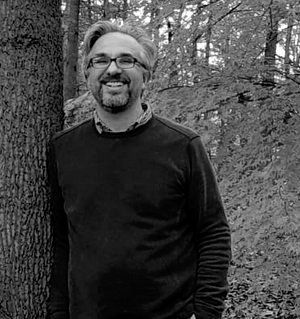
Peter Wien is Professor for the History of the Modern Middle East at the University of Maryland in College Park. He received his PhD in 2003 from the University of Bonn, Germany, and Master degrees from the Universities of Oxford and Heidelberg. He taught at Al-Akhawayn University in Ifrane, Morocco, and was a fellow of the ZMO (Centre for Modern Oriental Studies) in Berlin. He is the author of the books Arab Nationalism: The Politics of History and Culture in the Modern Middle East (London: Routledge, 2017) and Iraqi Arab Nationalism: Authoritarian, Totalitarian and Pro-Fascist Inclinations, 1932-1941 (London: Routledge, 2006).
Partner
This event is co-organized with the University of Maryland

Generations, Class, and Collapse—What We Owe Each Other
Thomas Mann House (1550 N San Remo Drive, CA 90272)

Language: English ・ By invitation only
Info
Participants

Sandra Kegel studied literature, theater, film and media studies in Aix-en-Provence, Vienna and Frankfurt. She has been an editor at the Frankfurter Allgemeine Zeitung since 1999. She worked in the media and literature departments for many years and has been head of the FAZ features section since 2019. She also works as a juror and presenter and is a regular critic on the literary program “Buchzeit” (3sat). In 2005, she was awarded the Ravensburg Media Prize.

Presentation and Conversation with “ALFA - A Land for All”
Thomas Mann House

Language: English ・ Only by Invitation
Info
2025 Thomas Mann Fellow and Islamic Studies scholar Sonja Hegasy will be in conversation with Omar Dajani and Rabbi Chaim Seidler-Feller to talk about the initiative “A Land for All: Two States, One Homeland,” founded in 2012. The presentation will be followed by a Q&A.
“A Land for All” (ALFA) is a joint Israeli-Palestinian political initiative founded by people who know the conflict in their daily life. Together, they have crafted a new shared political vision rejecting zero-sum thinking on complex issues like Jerusalem, settlements, and refugees. ALFA proposes a confederation model with gradual steps toward freedom of movement and residence for all Israelis and Palestinians across a shared homeland. The model offers national self-determination without domination, shared governance without erasing identity, and security without subjugation.
Participants

Sonja Hegasy is Deputy Director of the Leibniz-Zentrum Moderner Orient in Berlin. She studied Arabic and Islamic Studies at Columbia University and completed her doctorate in political science at FU Berlin. In 2019–2021, she held the professorship for Postcolonial Studies at the Barenboim-Said Akademie in Berlin. In 2023, she was a Senior Fellow at the M.S. Merian – R. Tagore International Centre of Advanced Studies “Metamorphoses of the Political” in Delhi.
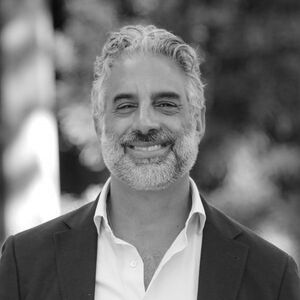
Omar M. Dajani is the Carol Olson Professor of International Law at McGeorge School of Law, University of the Pacific in California. He is also the immediate past co-chair of the joint board of A Land for All, on which he continues to serve. Previously, Omar served as a legal adviser to the Palestinian negotiating team in peace talks with Israel from 1999 to 2001, participating in the summits at Camp David and Taba. He received his B.A. from Northwestern University and his J.D. from Yale Law School.
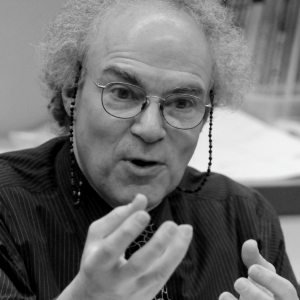
Chaim Seidler-Feller has been associated with Hillel for over 50 years and has celebrated forty years of working with students and faculty as the Executive Director of the Yitzhak Rabin Hillel Center for Jewish Life at UCLA. He is currently Director Emeritus. He is currently a faculty member of the Shalom Hartman Institute, North America and is an organizer for "A Land for All" in the U.S. He was a founding member of Americans for Peace Now. Chaim is the author most recently of “The God of Possibilities: From Being to Becoming,” "'Twas the Best of Times, ‘Twas the Worst of Times: Antisemitism, Israel and the Politics of Resentment on the Campus Today,” and “A Return to a Zionism for the Future.”
What is Home? An Interactive Workshop
Los Angeles Poverty Department (250 S Broadway, Los Angeles, CA 90012)
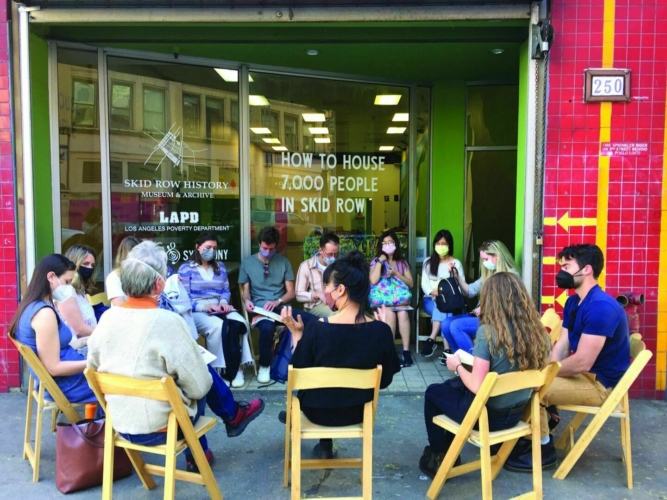
Language: English ・ By invitation only
Info
Participants

Susanne Beyer studied German literature, history and journalism in Bamberg and Vienna. After her vocational training at Deutsche Journalistenschule (DJS), she initially worked as a culture editor at SPIEGEL, a German weekly news magazine and one of the largest such publications in Europe, where she was deputy head of department. She was deputy editor-in-chief of SPIEGEL for four years, then worked as a journalist in SPIEGEL's Berlin office and now writes for the editorial team. Alongside her job, Susanne Beyer is currently training to become a mediator. Beyer is a 2025 Thomas Mann Fellow.
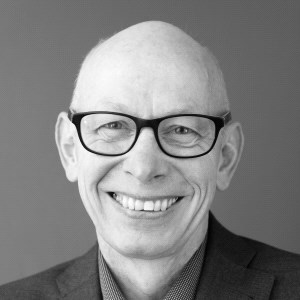
Bjorn Krondorfer has worked with different groups in interactive settings exploring sensitive issues, including memory and trauma relating to the Holocaust, racial diversity on university campuses, and Palestinian/Israeli encounter groups (pre-October 5). He is Regents’ Professor and Director of the Martin-Springer Institute at Northen Arizona University in Flagstaff.

Los Angeles Poverty Department, founded in 1985 by director, performer, and activist John Malpede, is the first arts organization in the nation created by and with people experiencing homelessness, and the first cultural program of any kind for Skid Row, Los Angeles. Rooted in the conviction that the imagination and creativity of Skid Row residents are vital forces for change, LAPD uses theater and other arts to challenge stereotypes, amplify community voices, and address pressing social issues such as housing, drug policy, mass incarceration, and displacement. Through performances, festivals, parades, exhibitions, and its Skid Row History Museum & Archive, LAPD celebrates the resilience and achievements of neighborhood residents while shaping broader policy conversations around poverty and urban development. Its pioneering work has inspired service providers, informed public policy, and created a model for grassroots, arts-based civic engagement recognized nationally and internationally.
Partner
This event is co-presented by the Los Angeles Angeles Poverty Department













